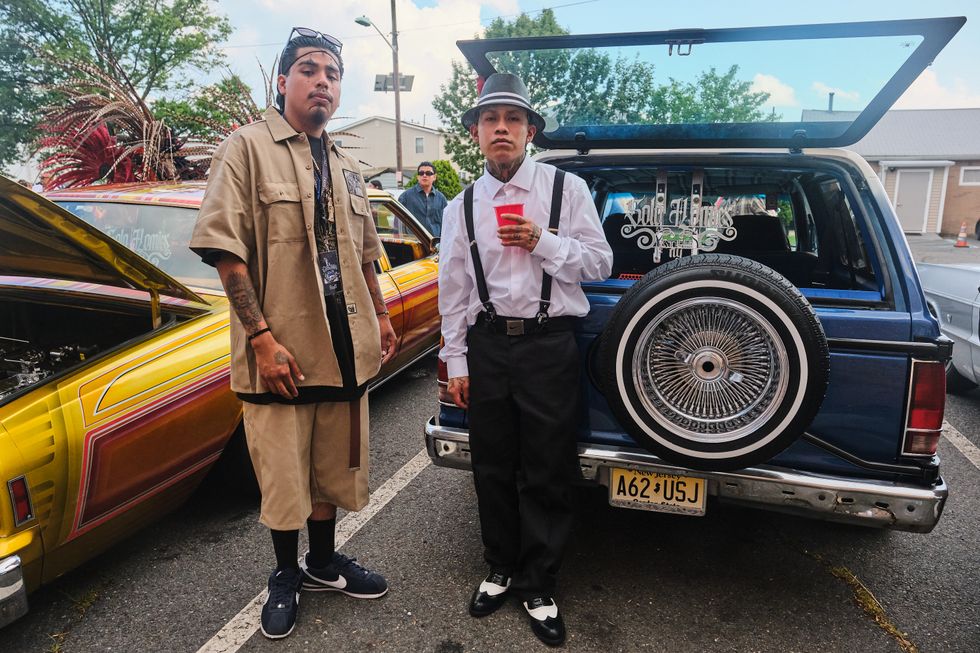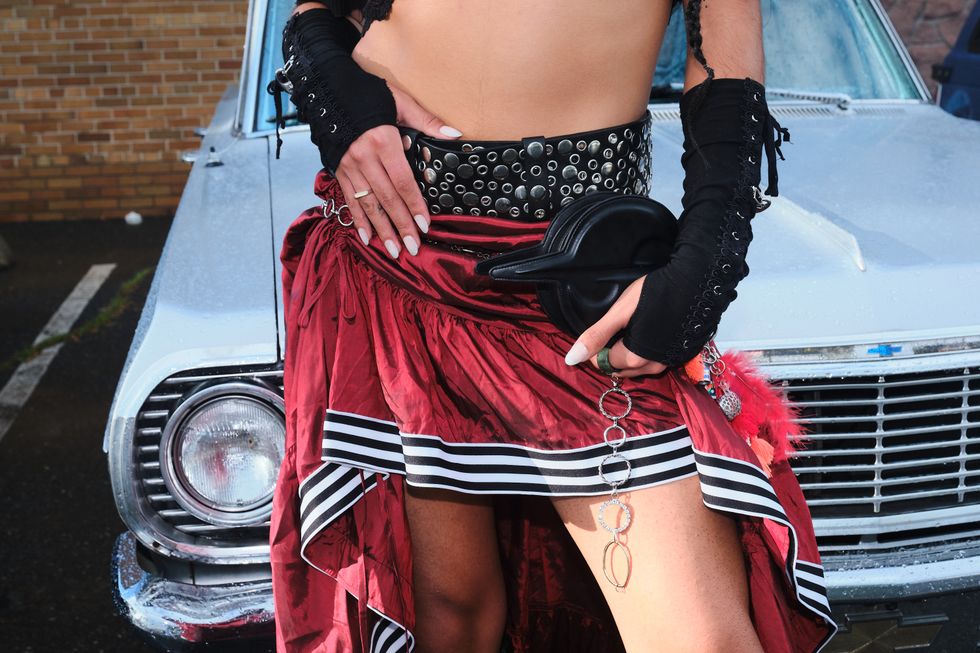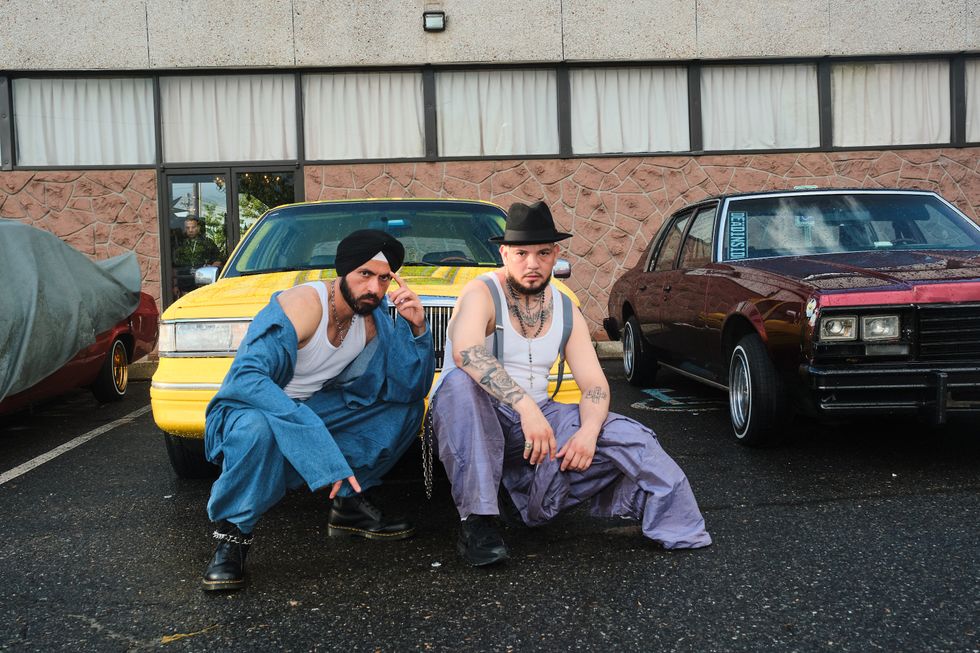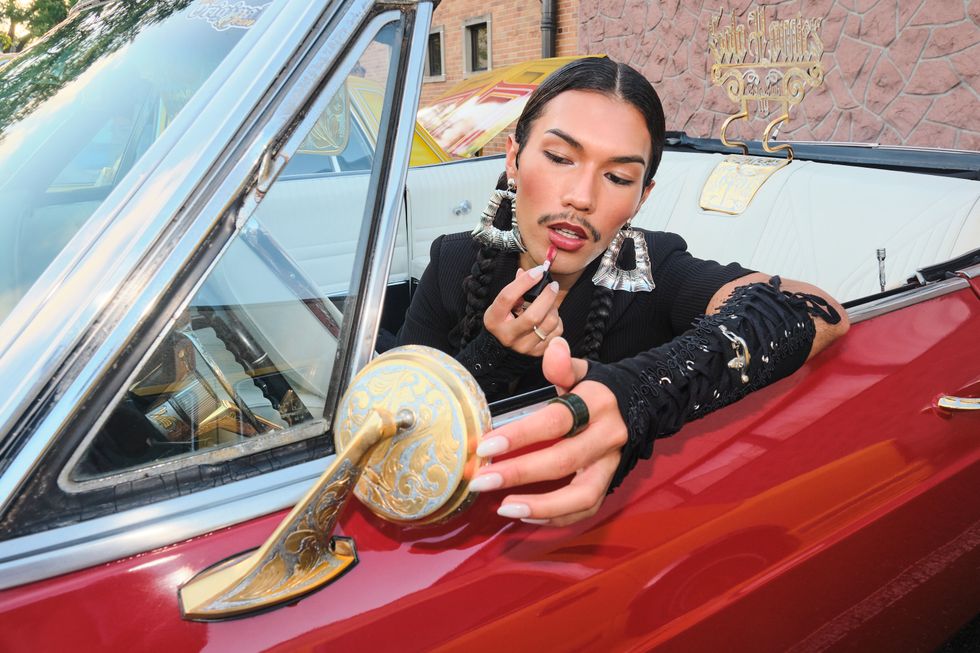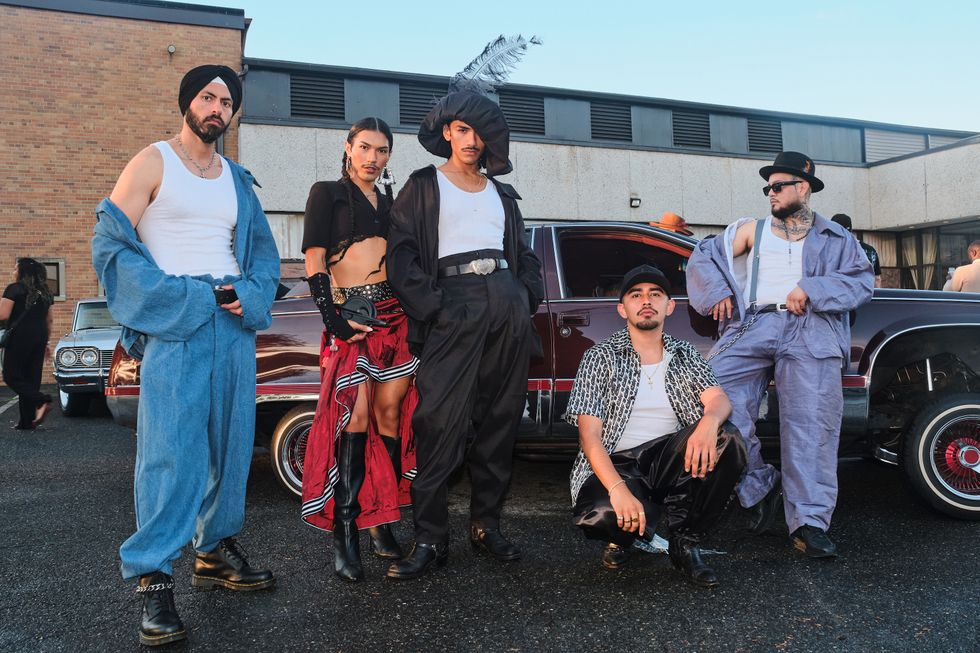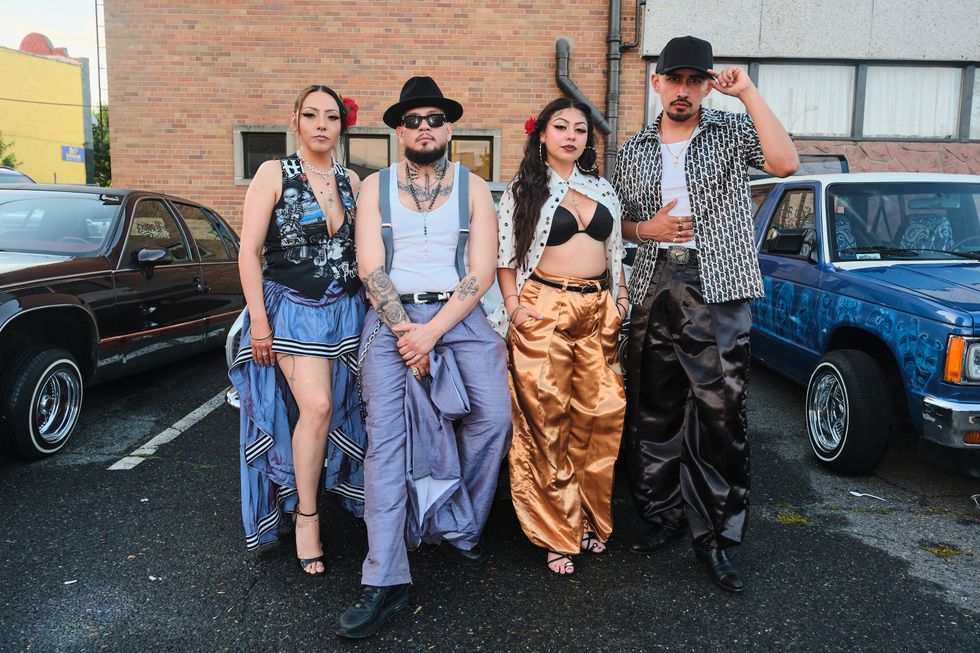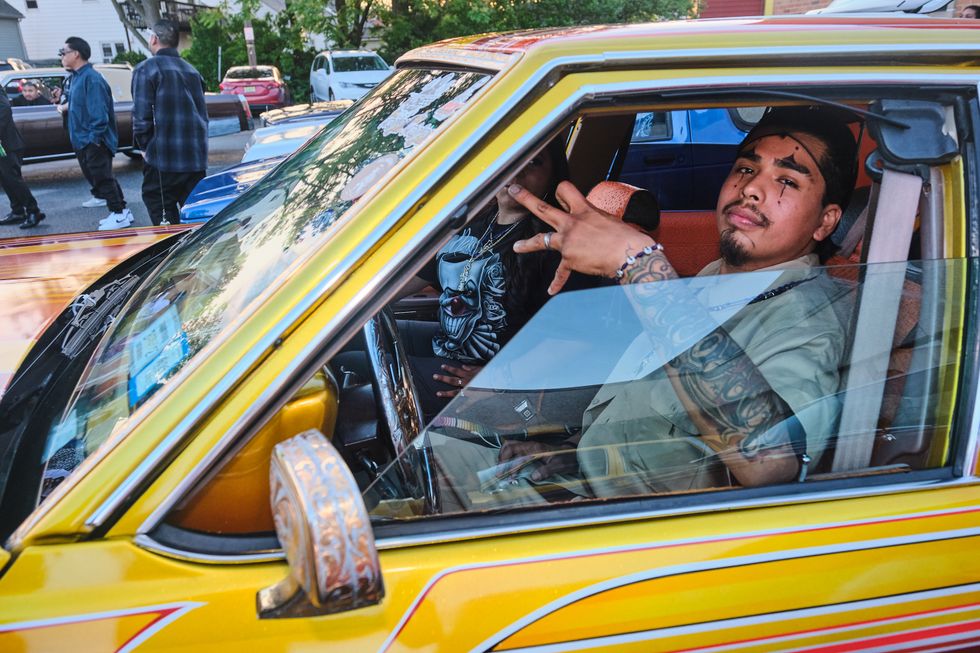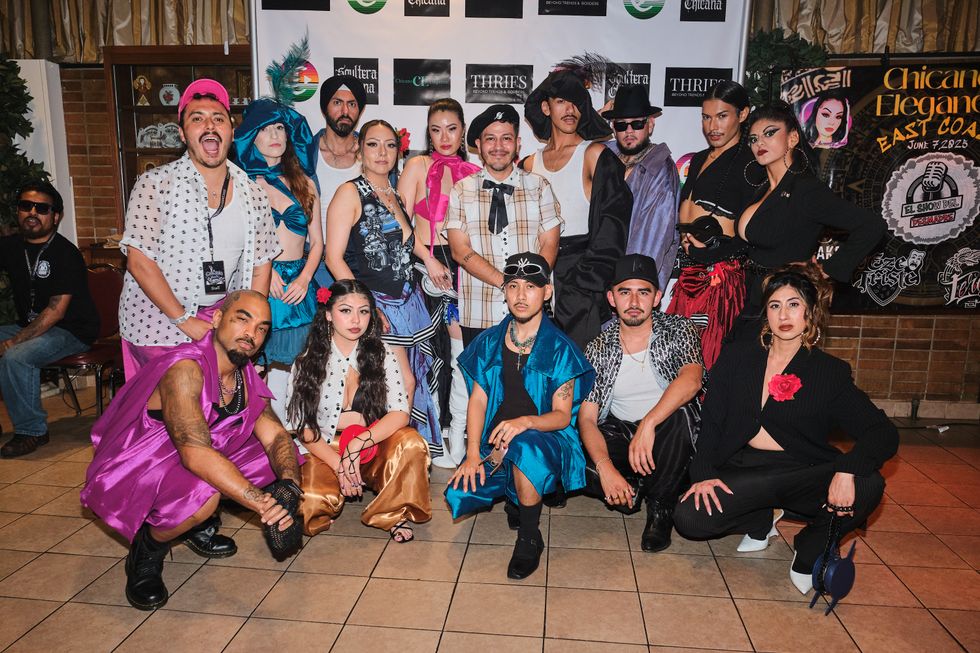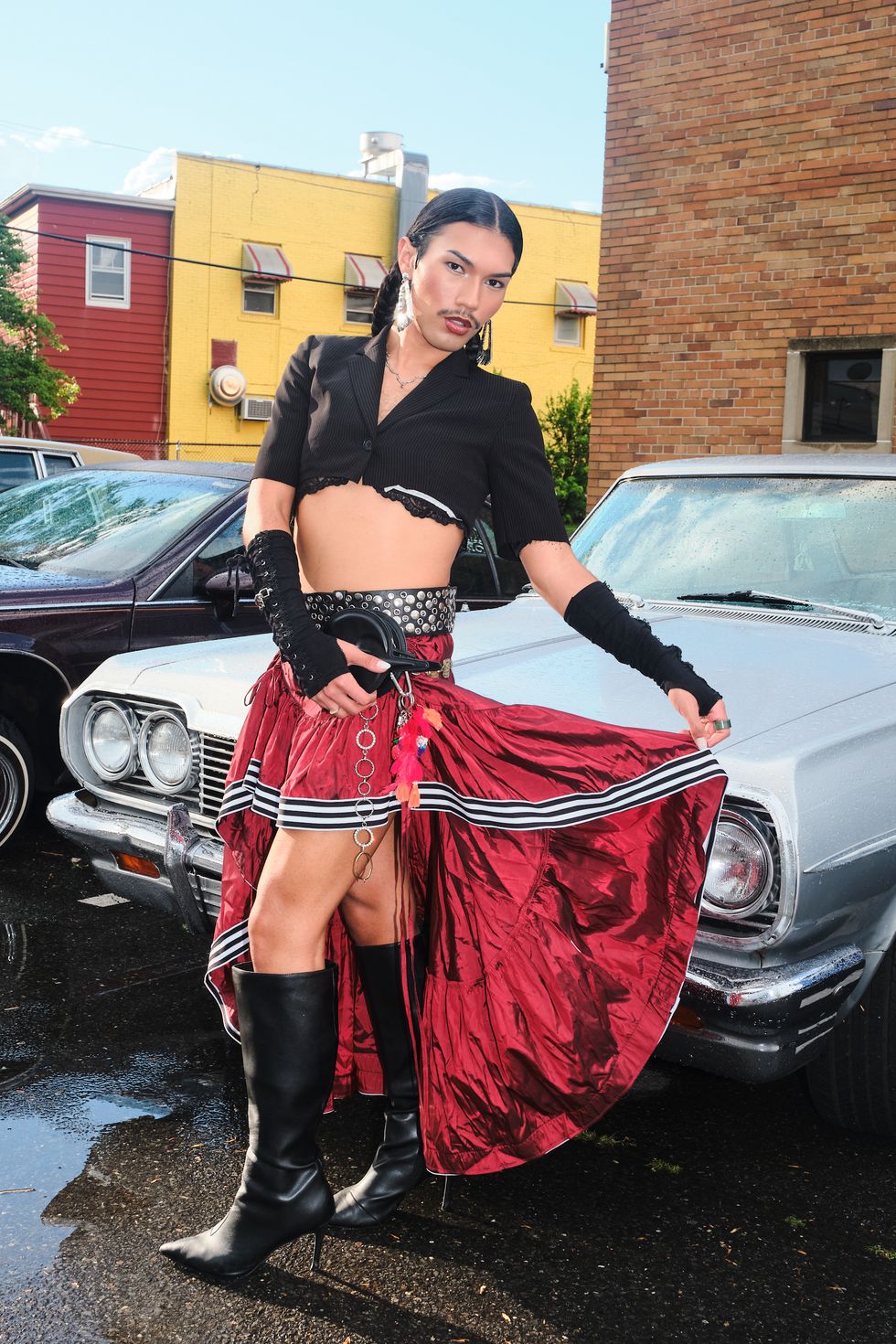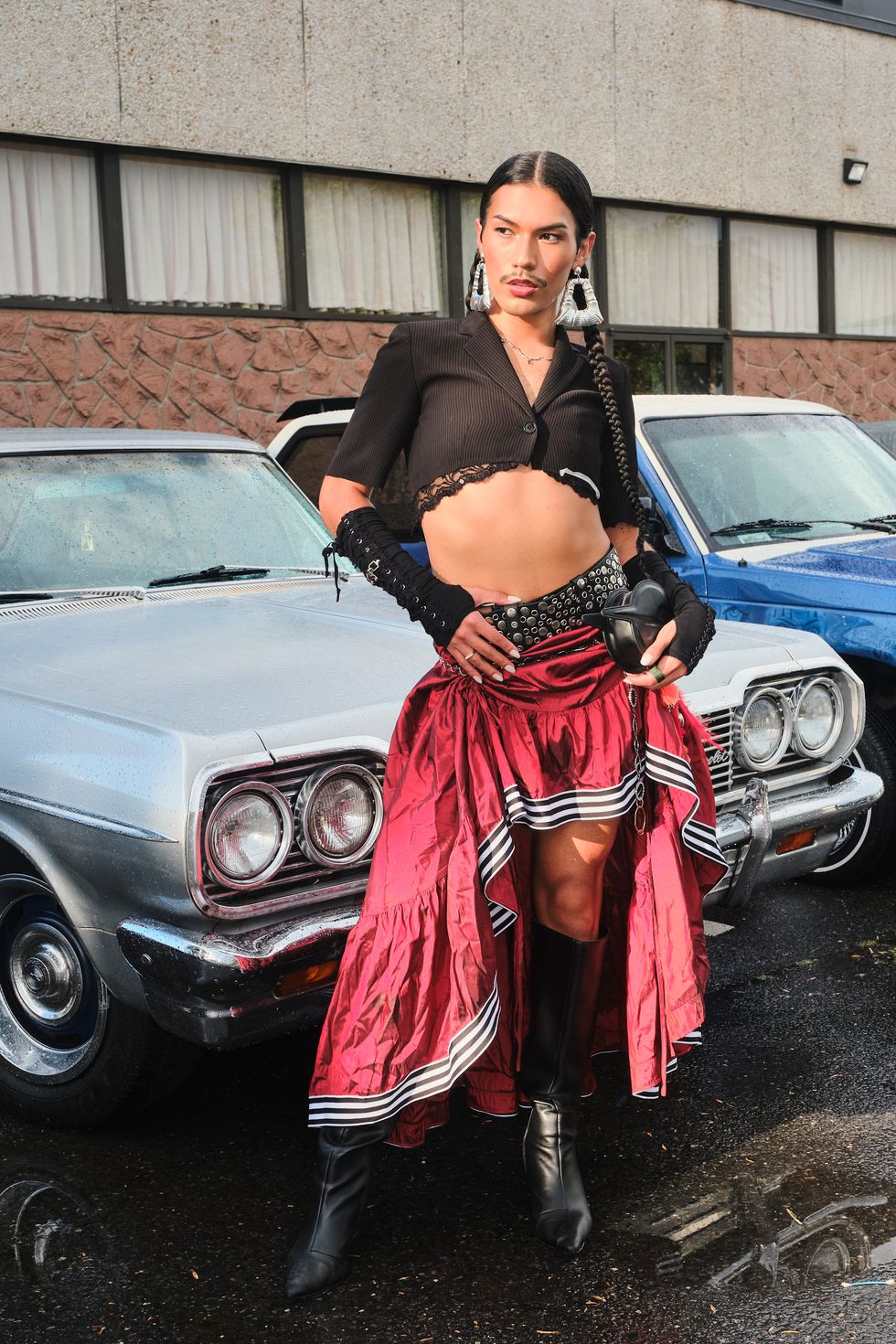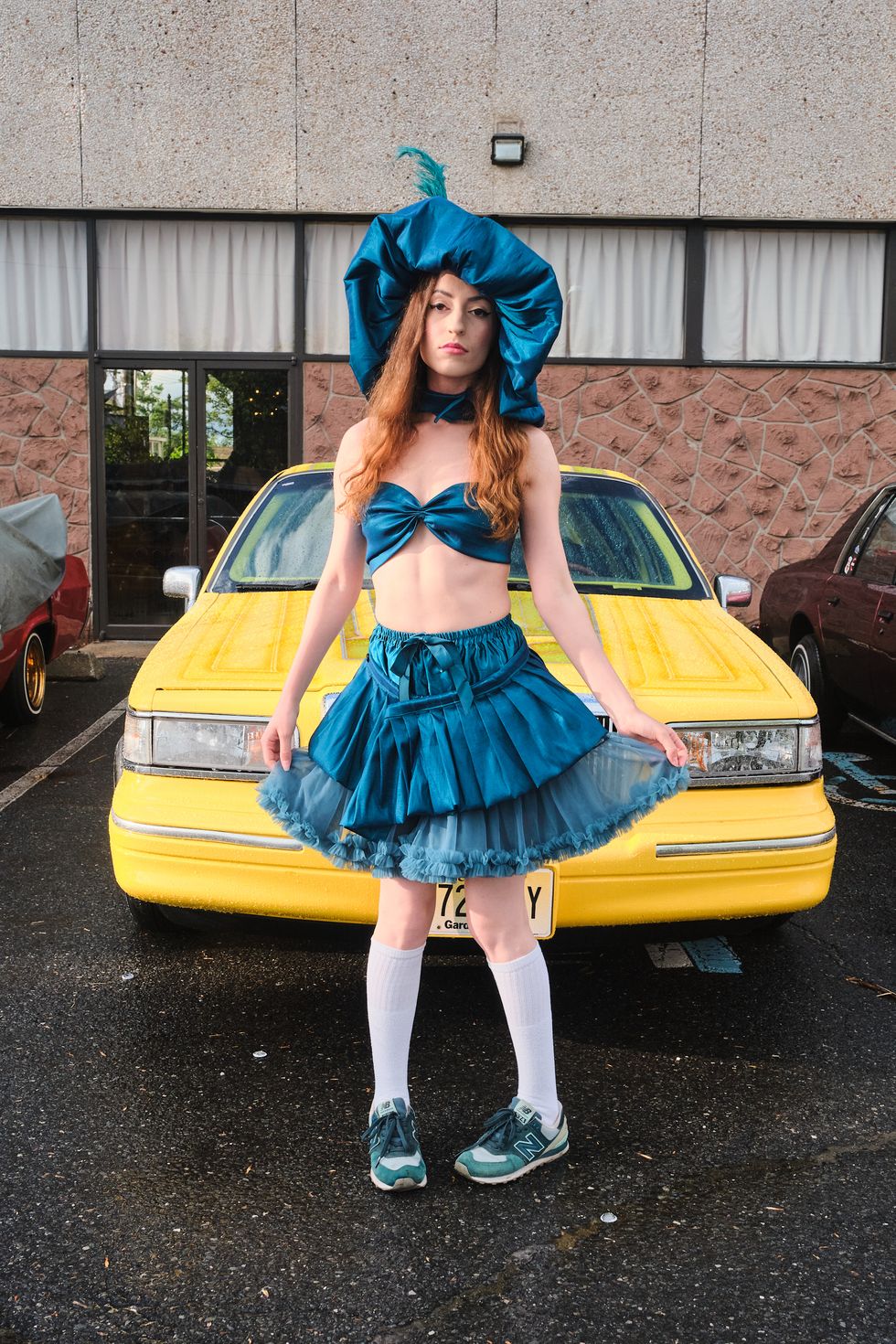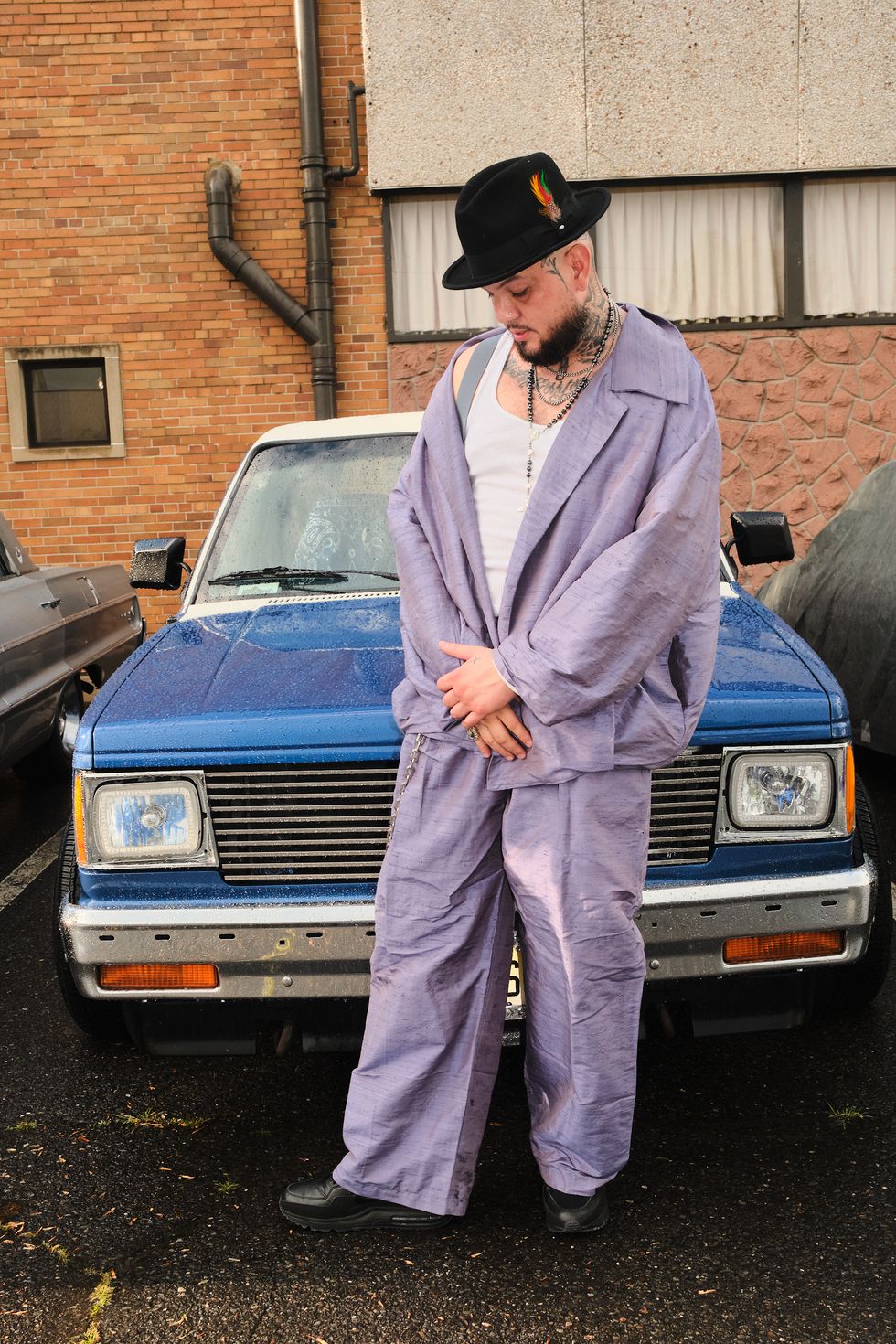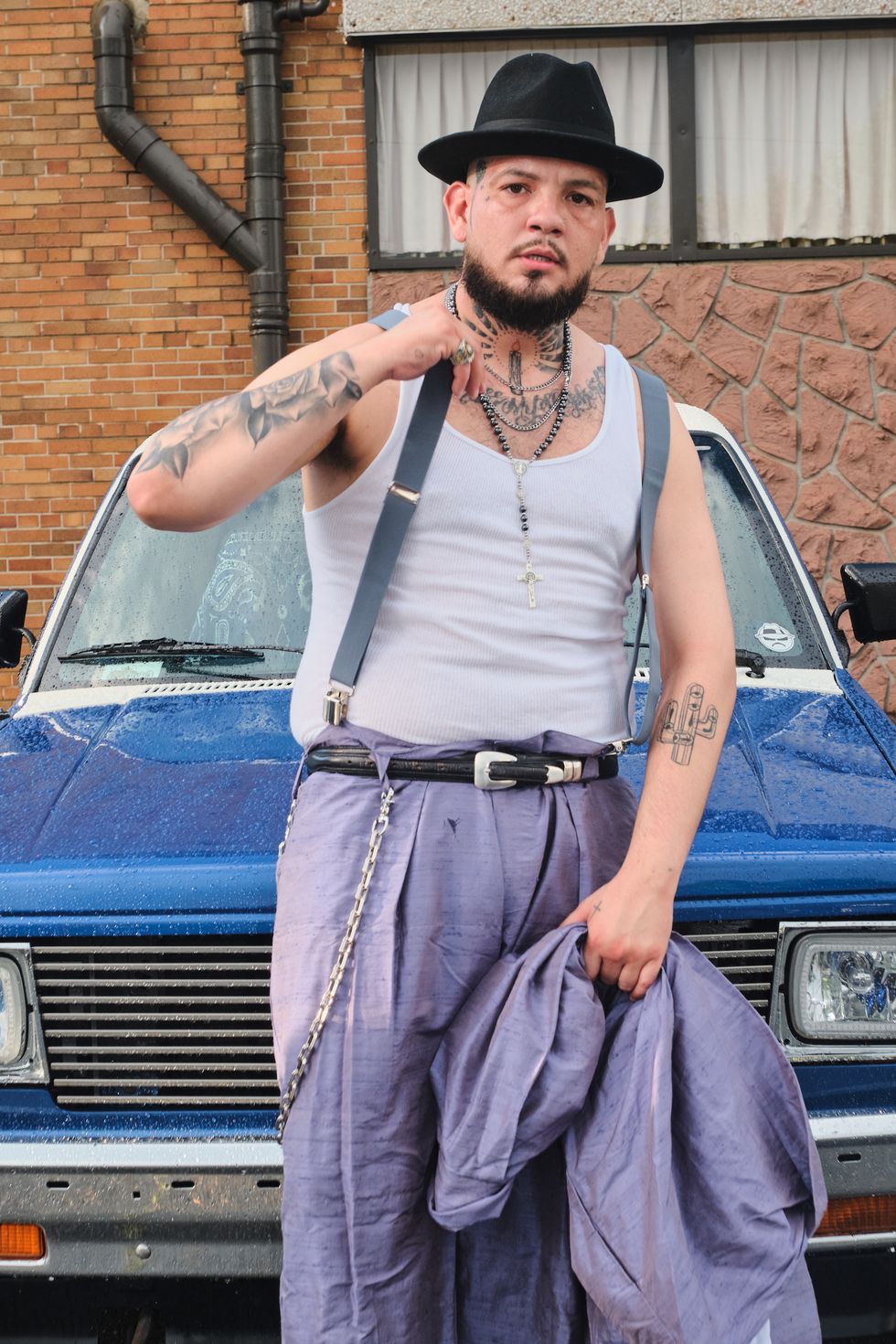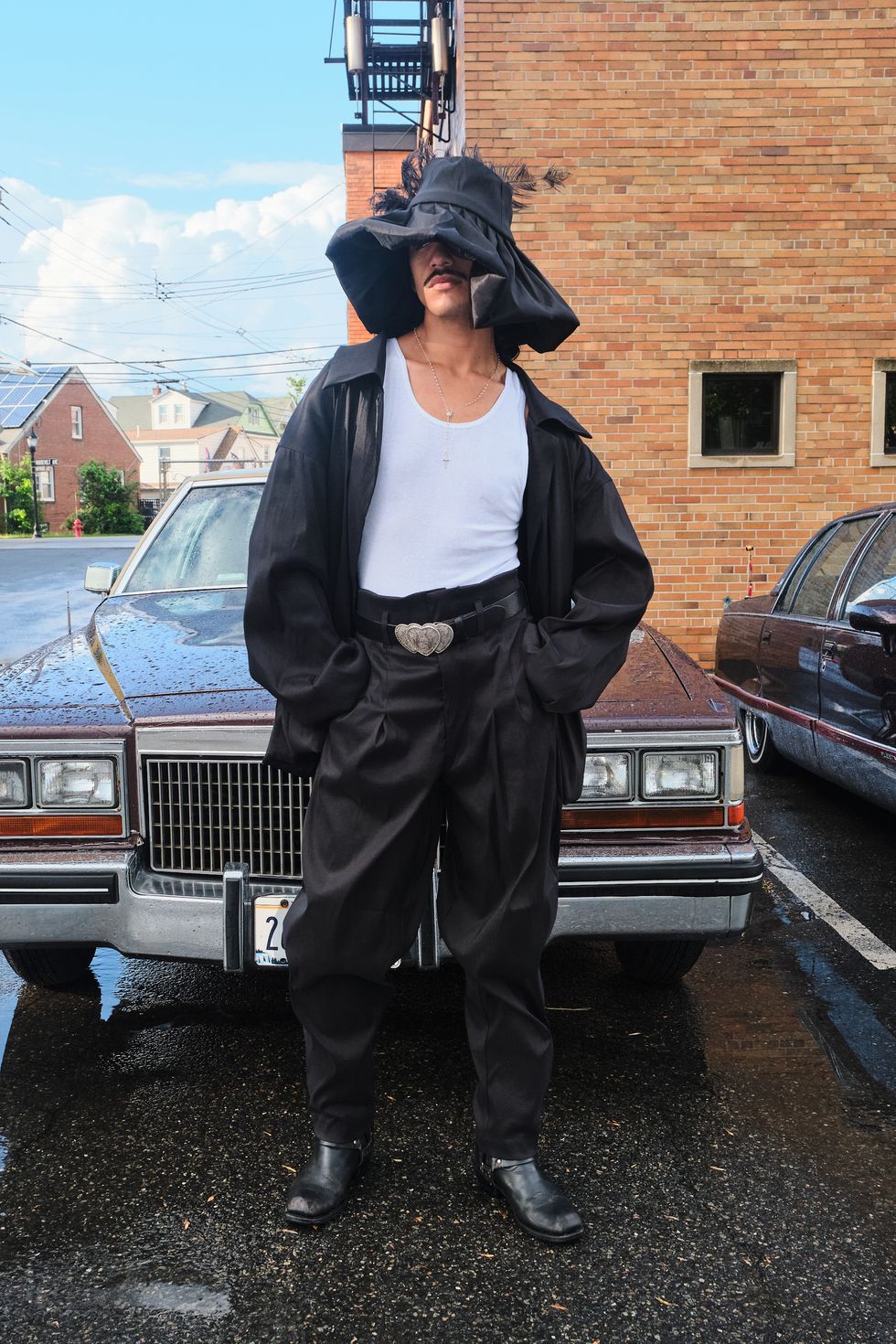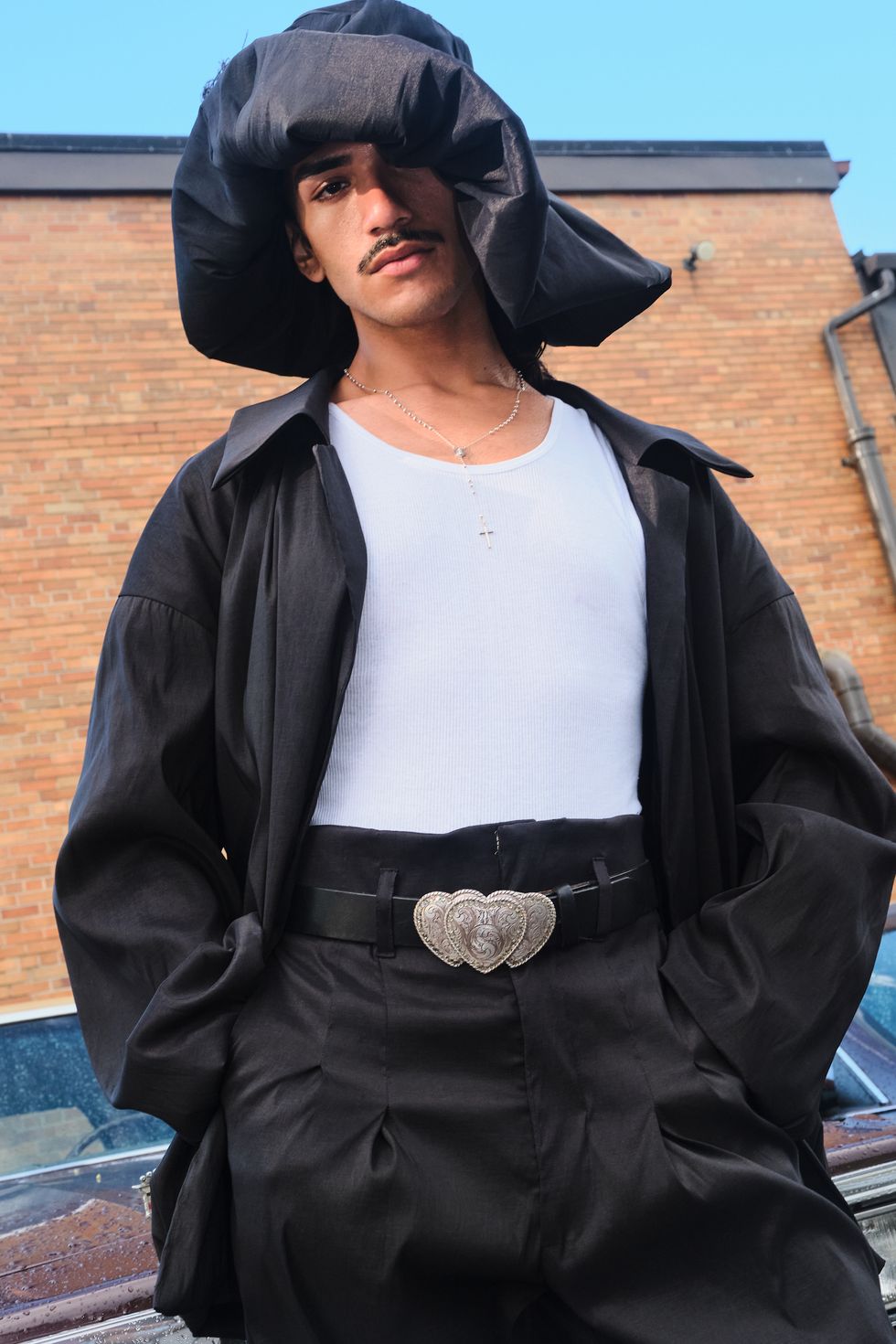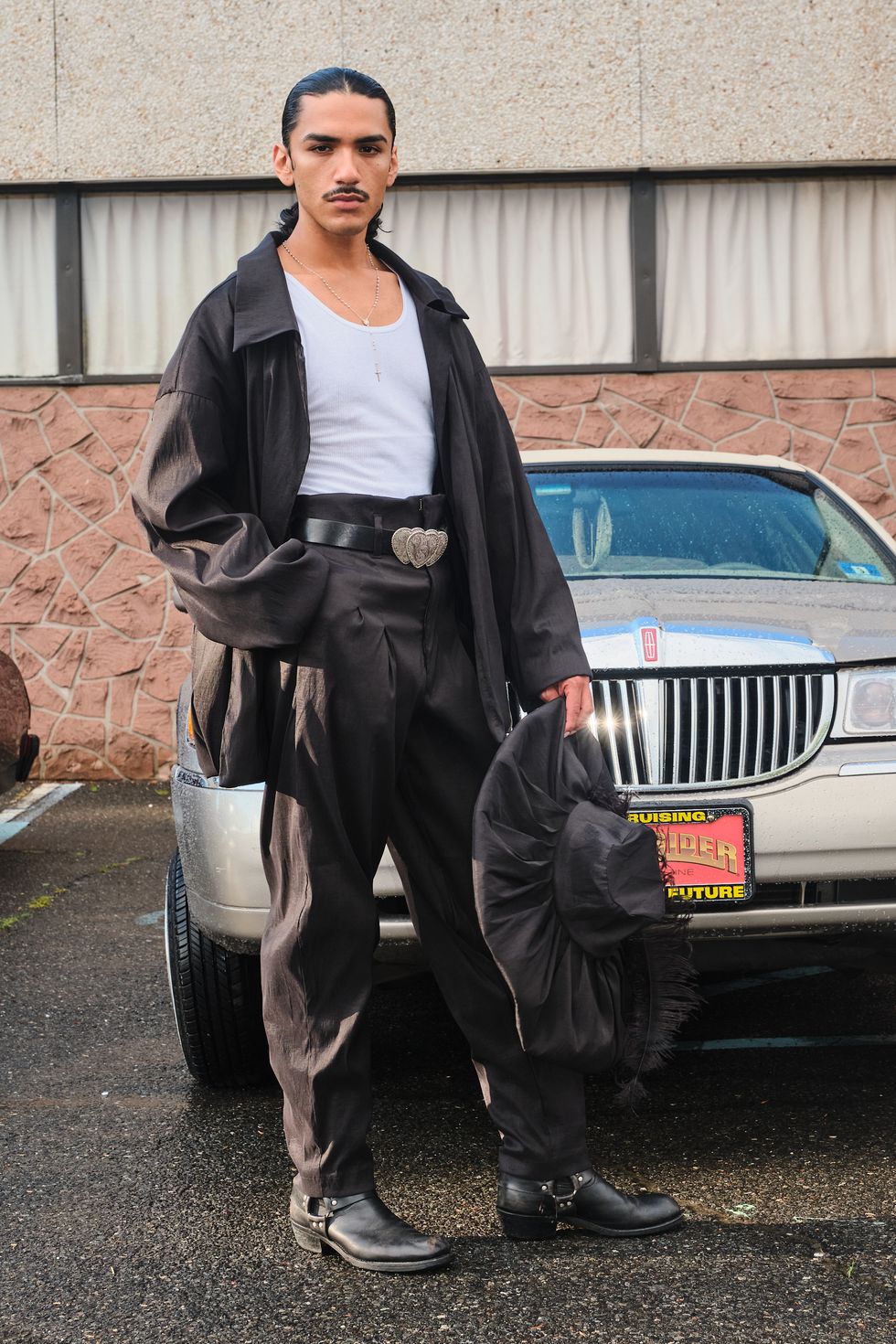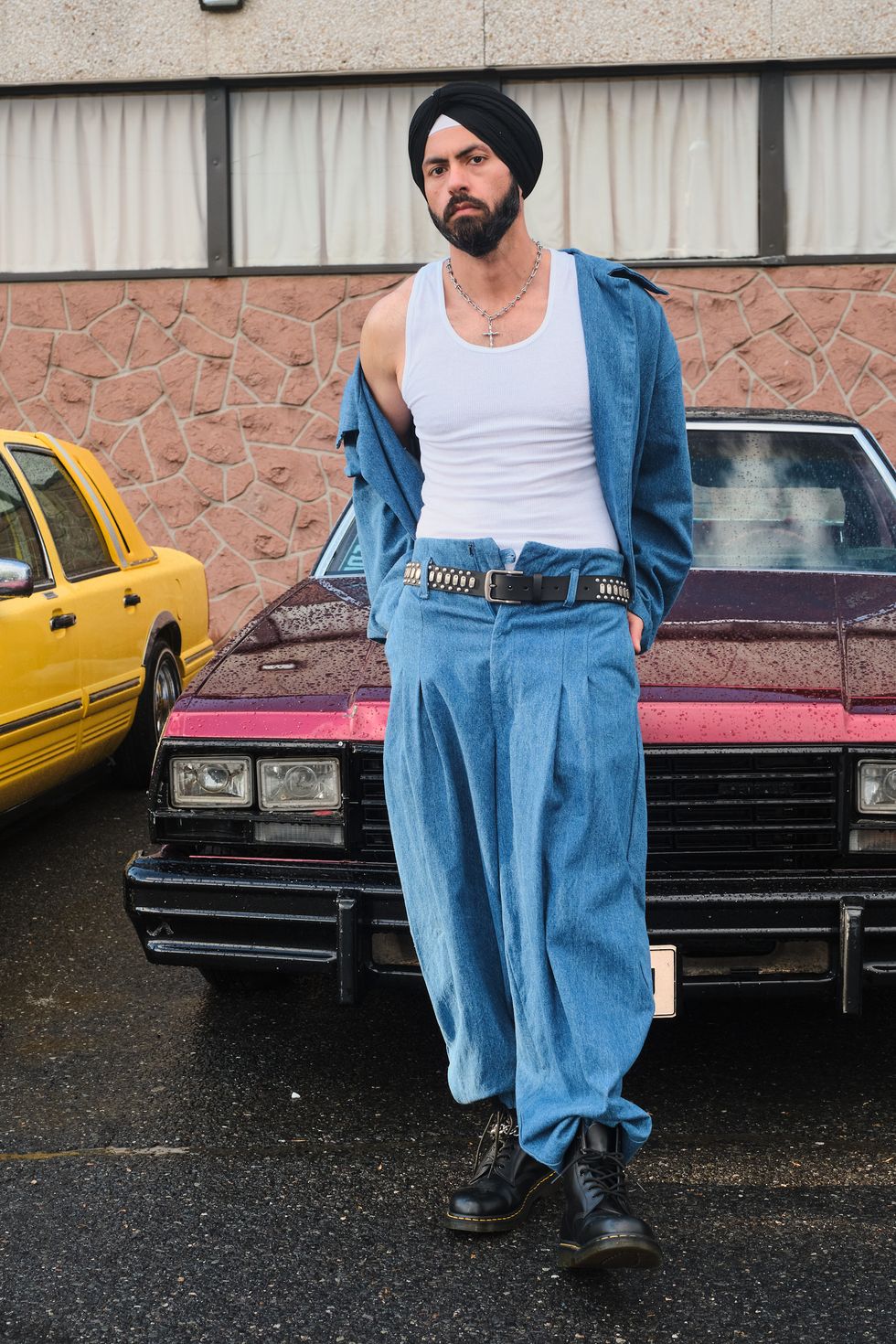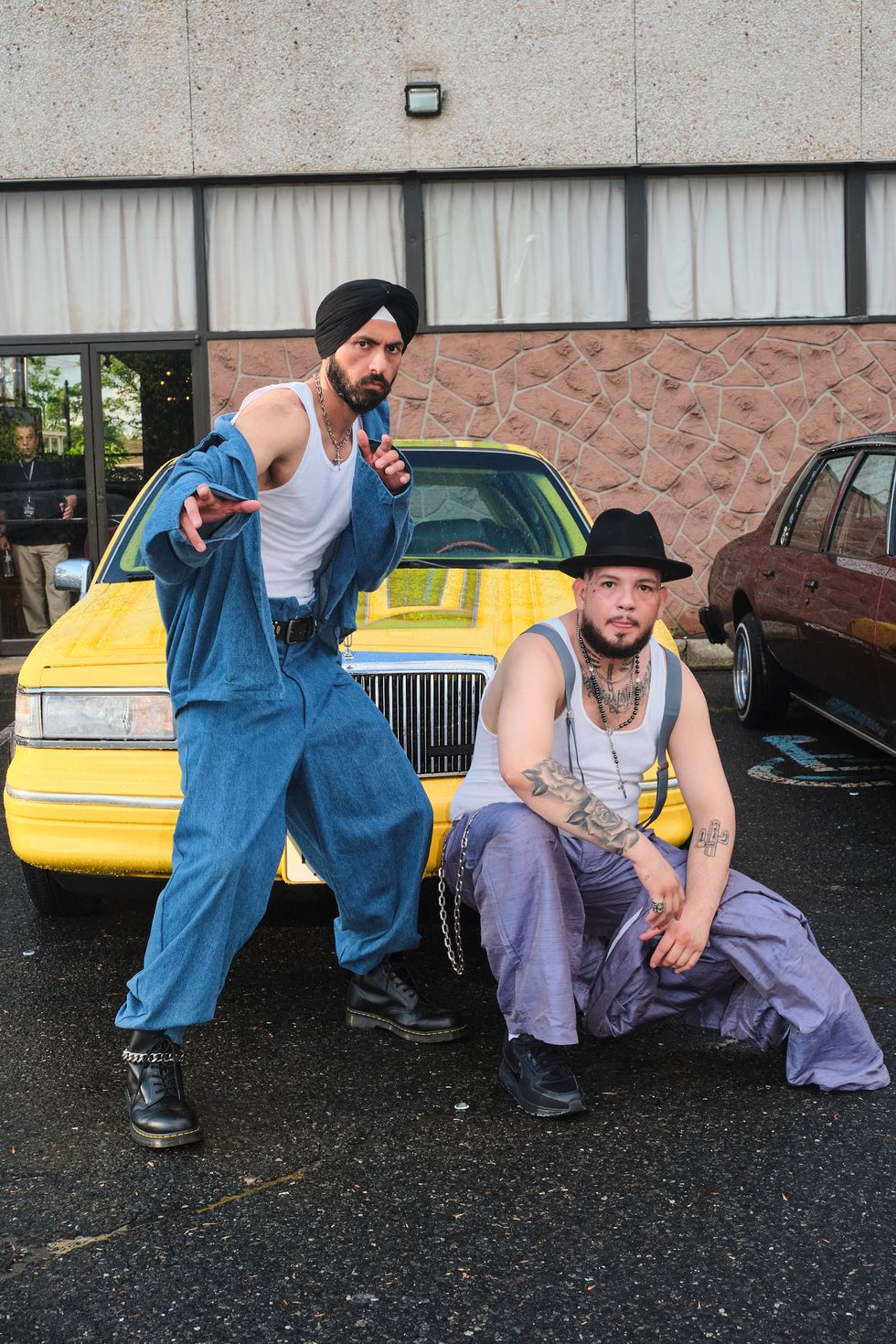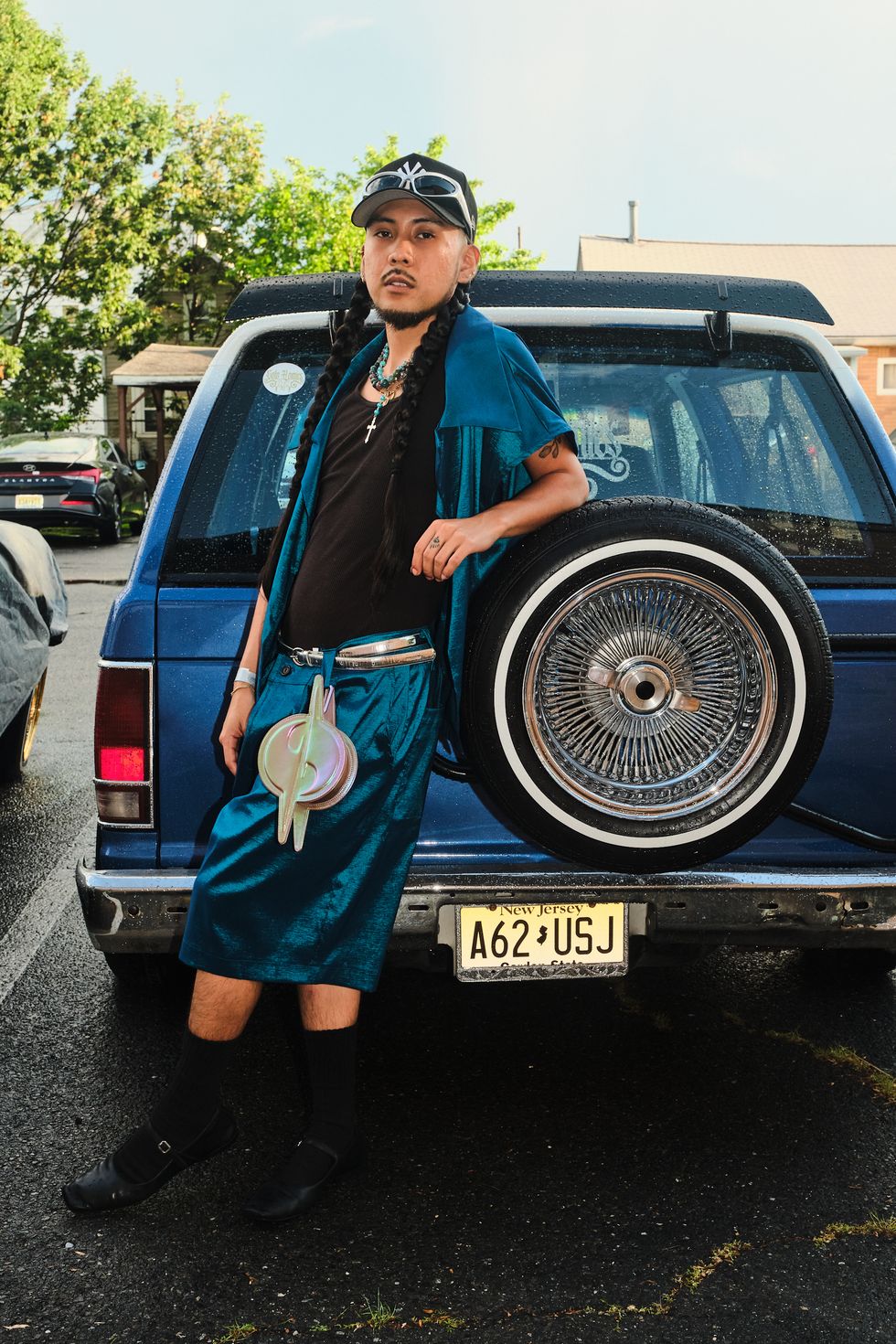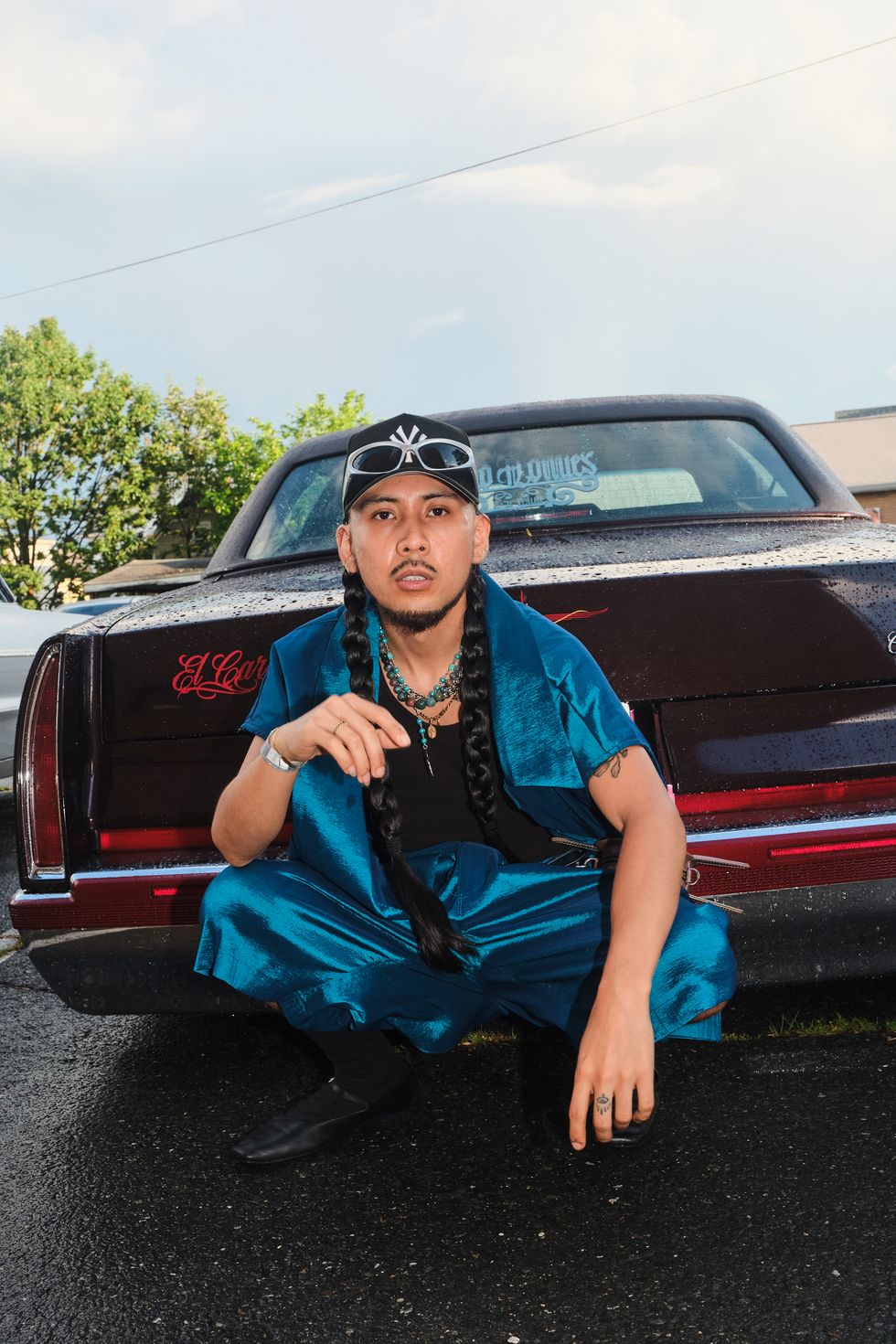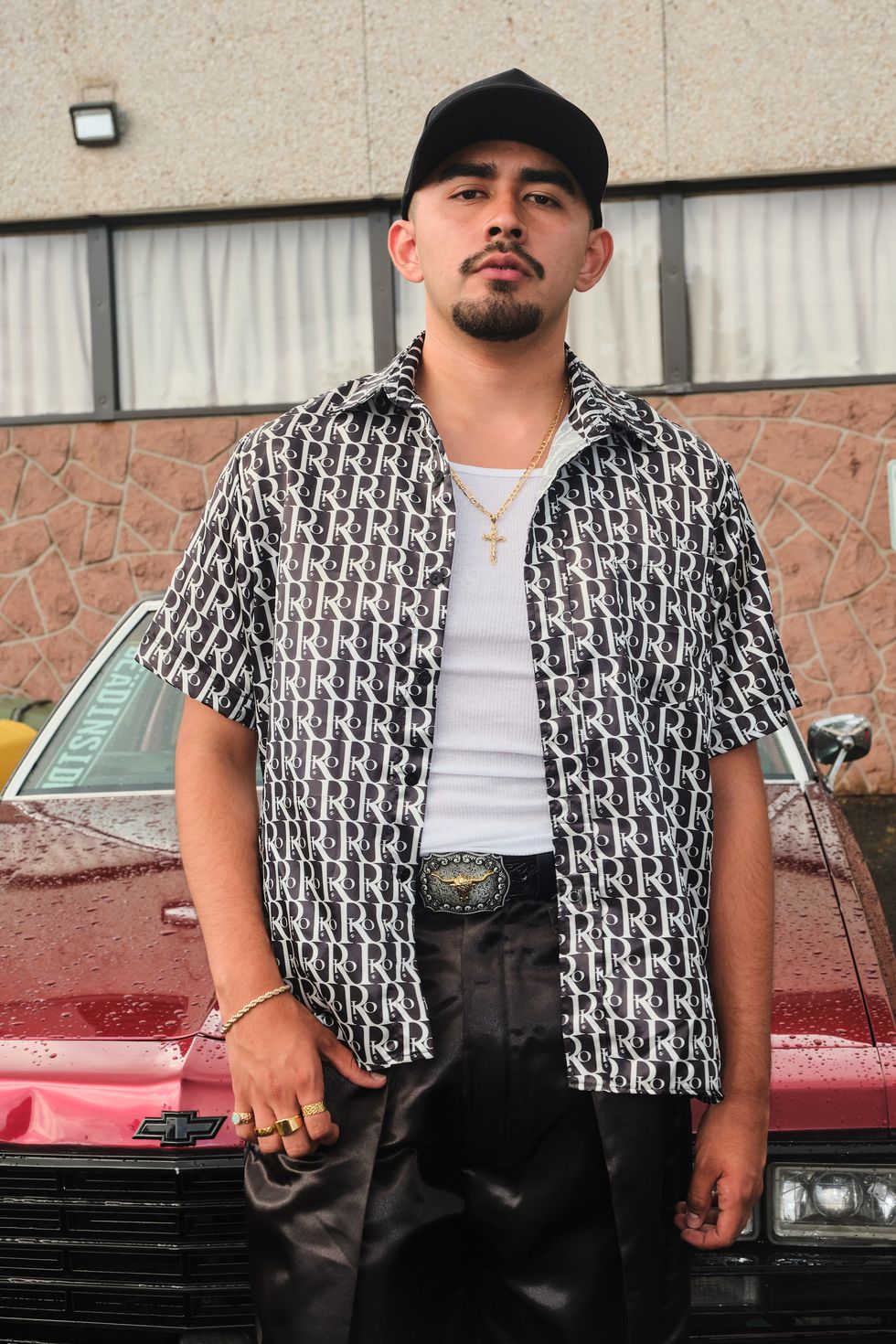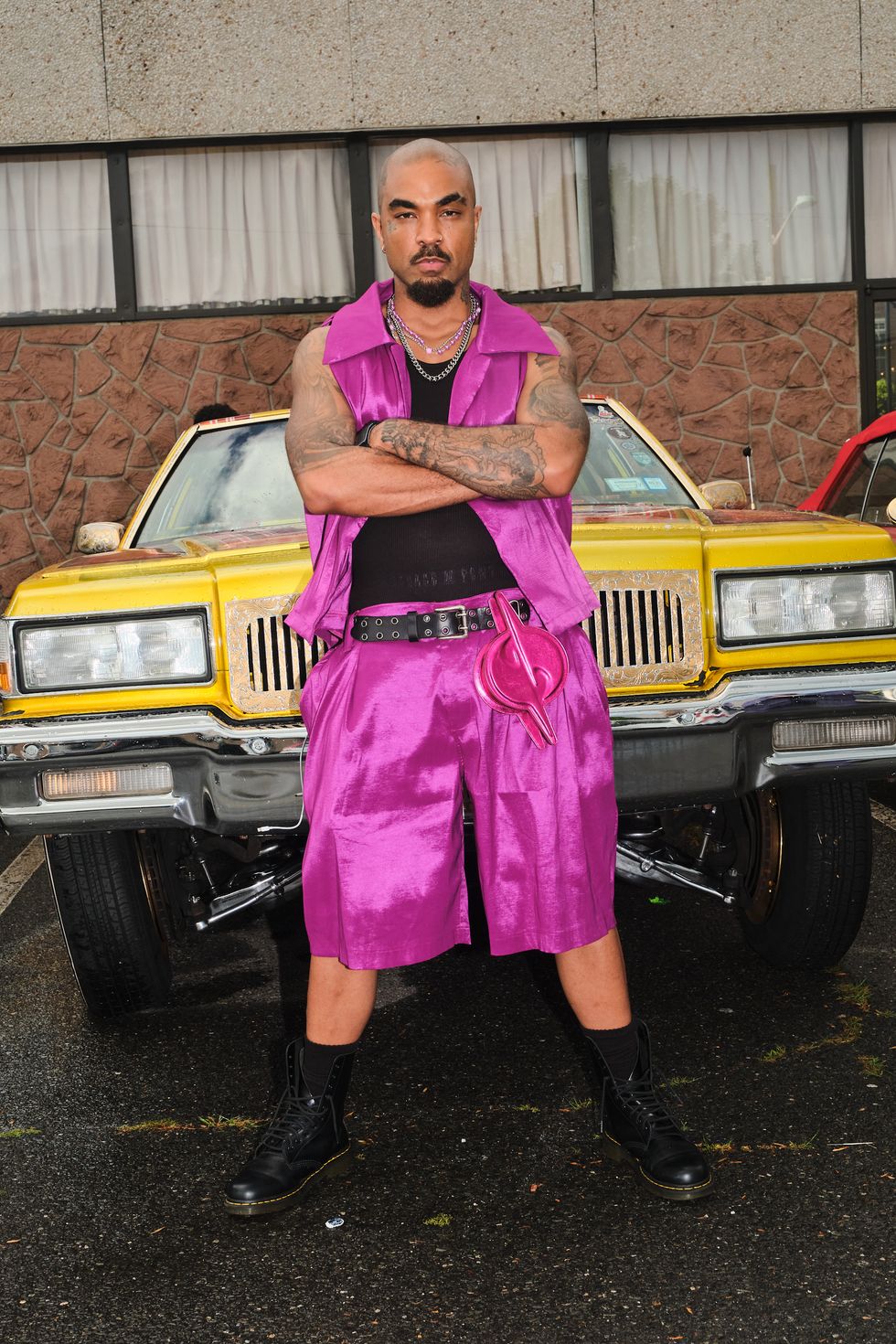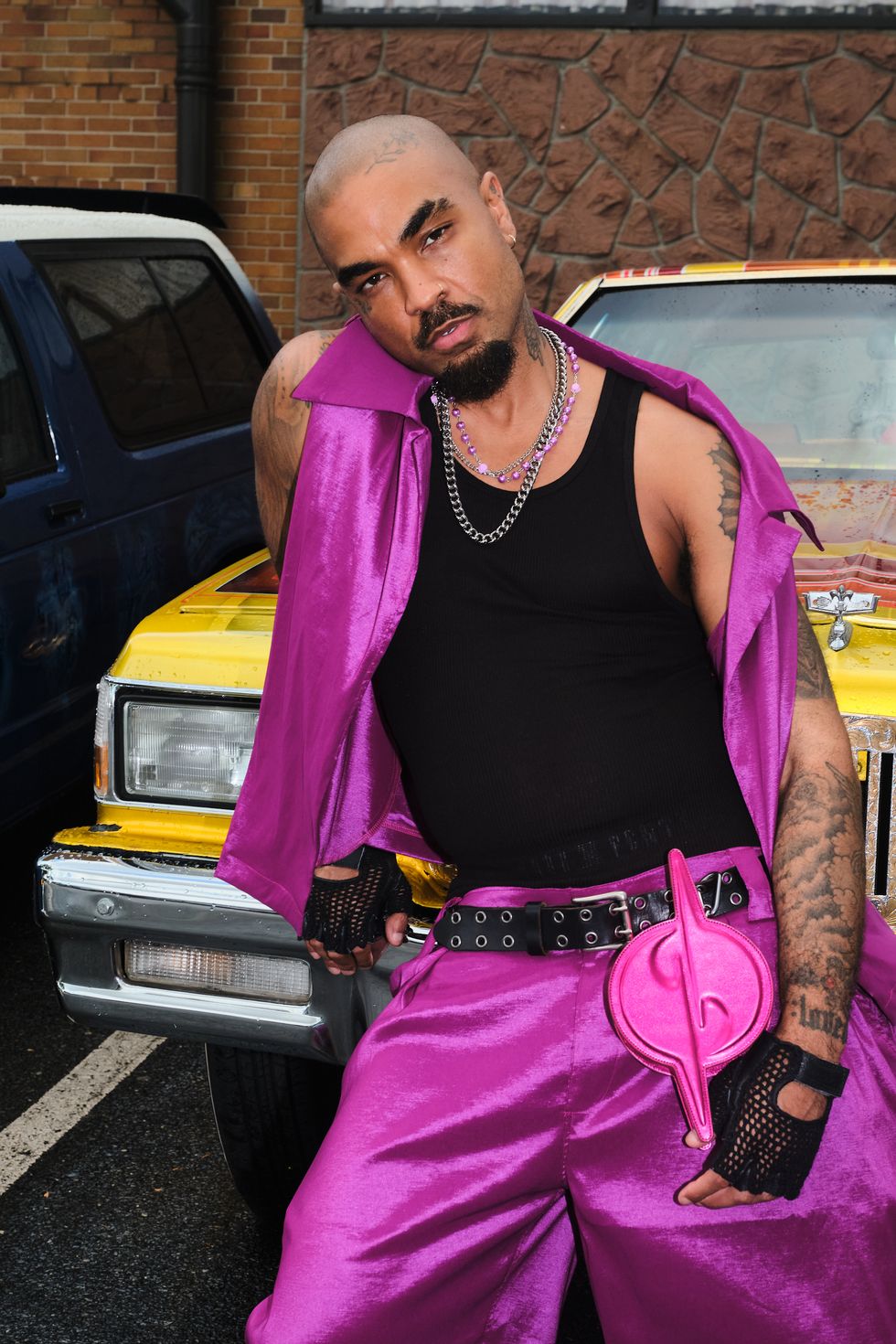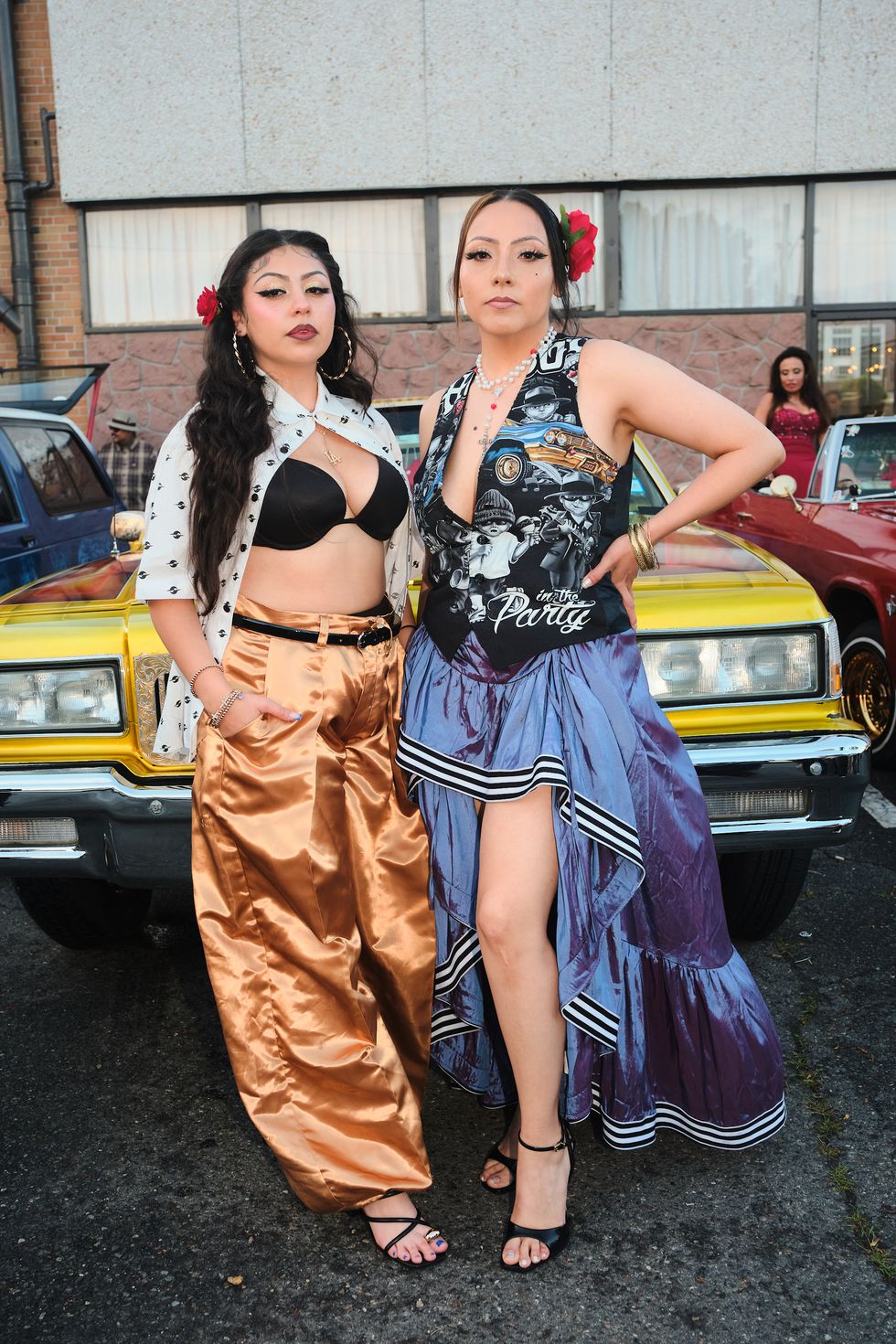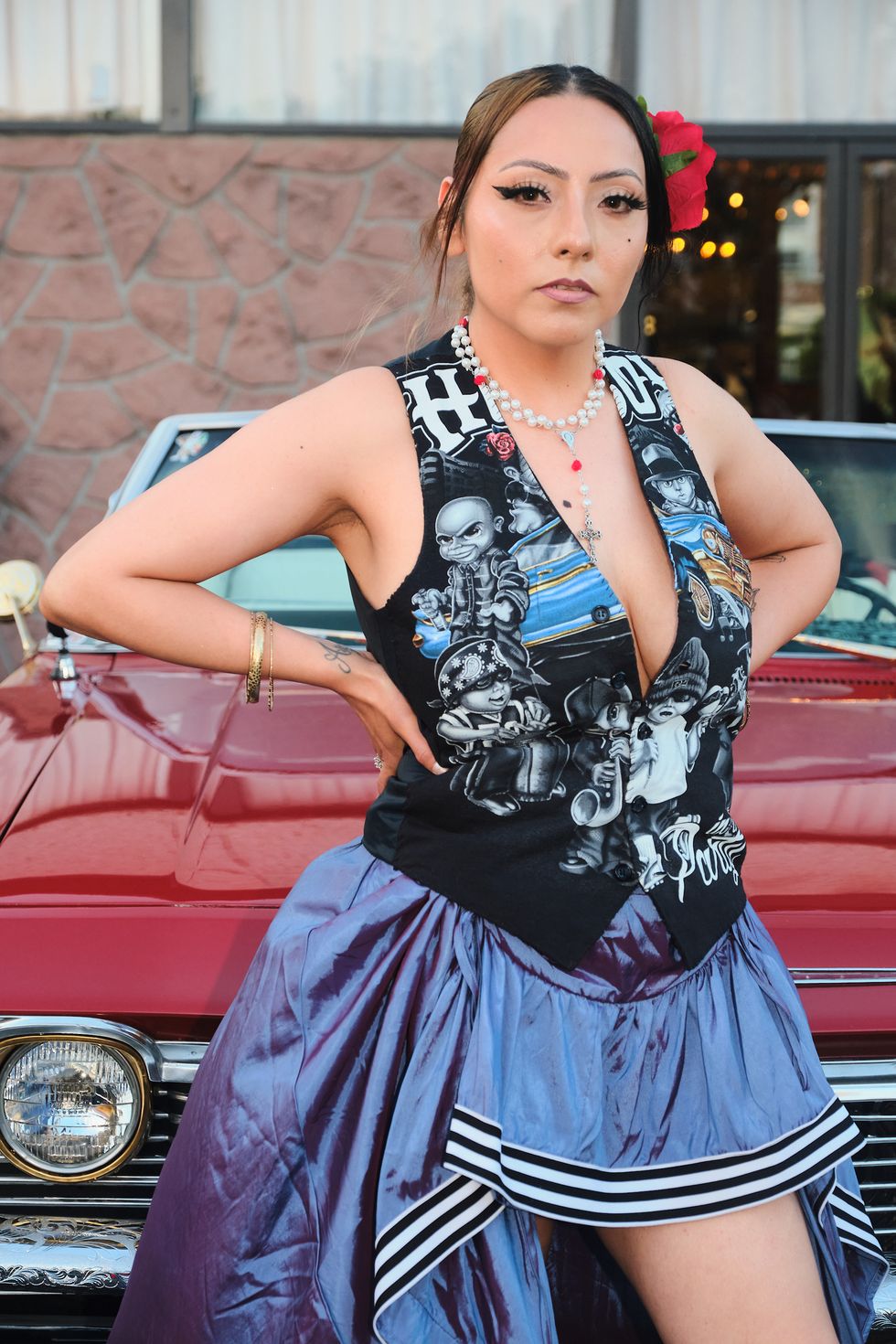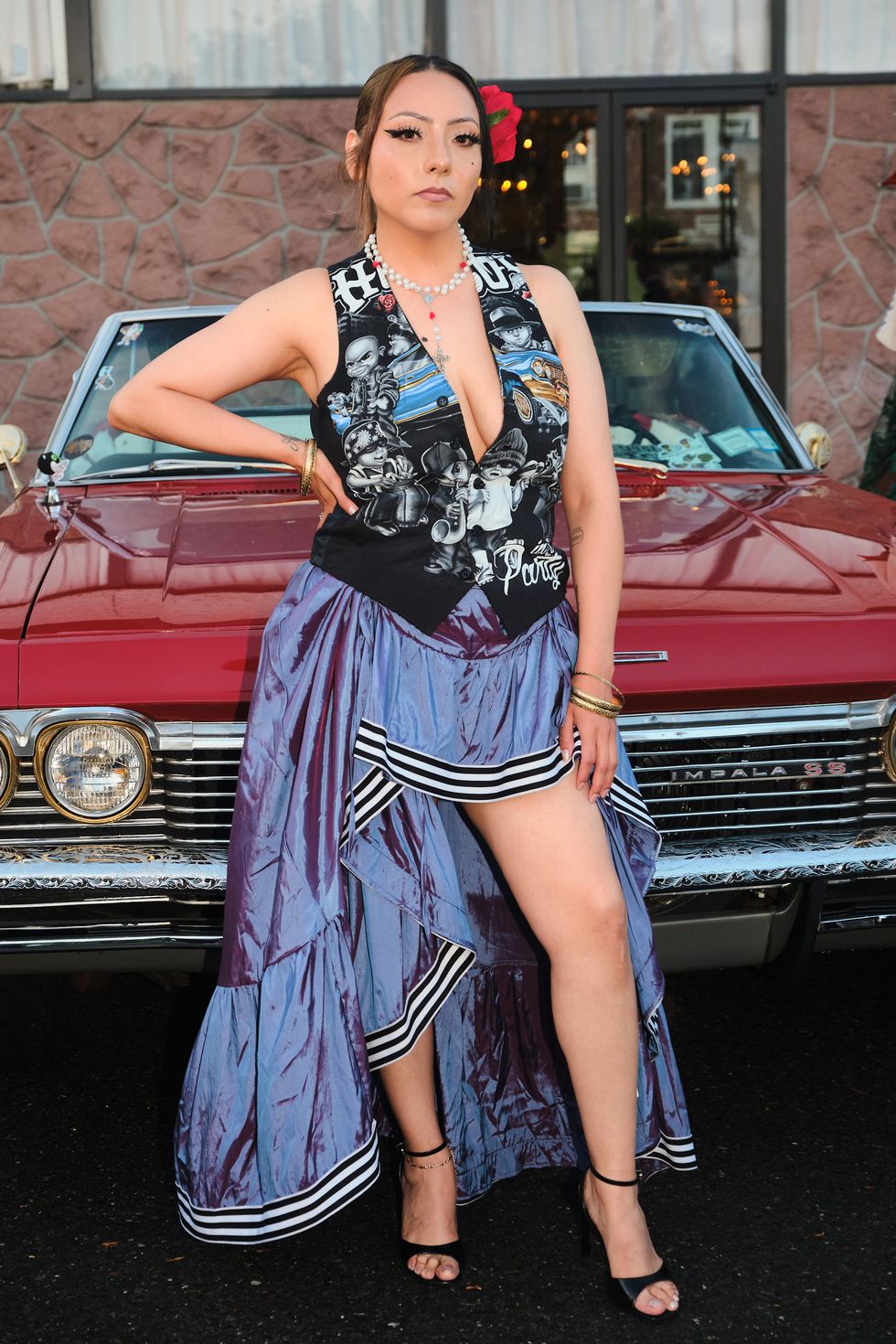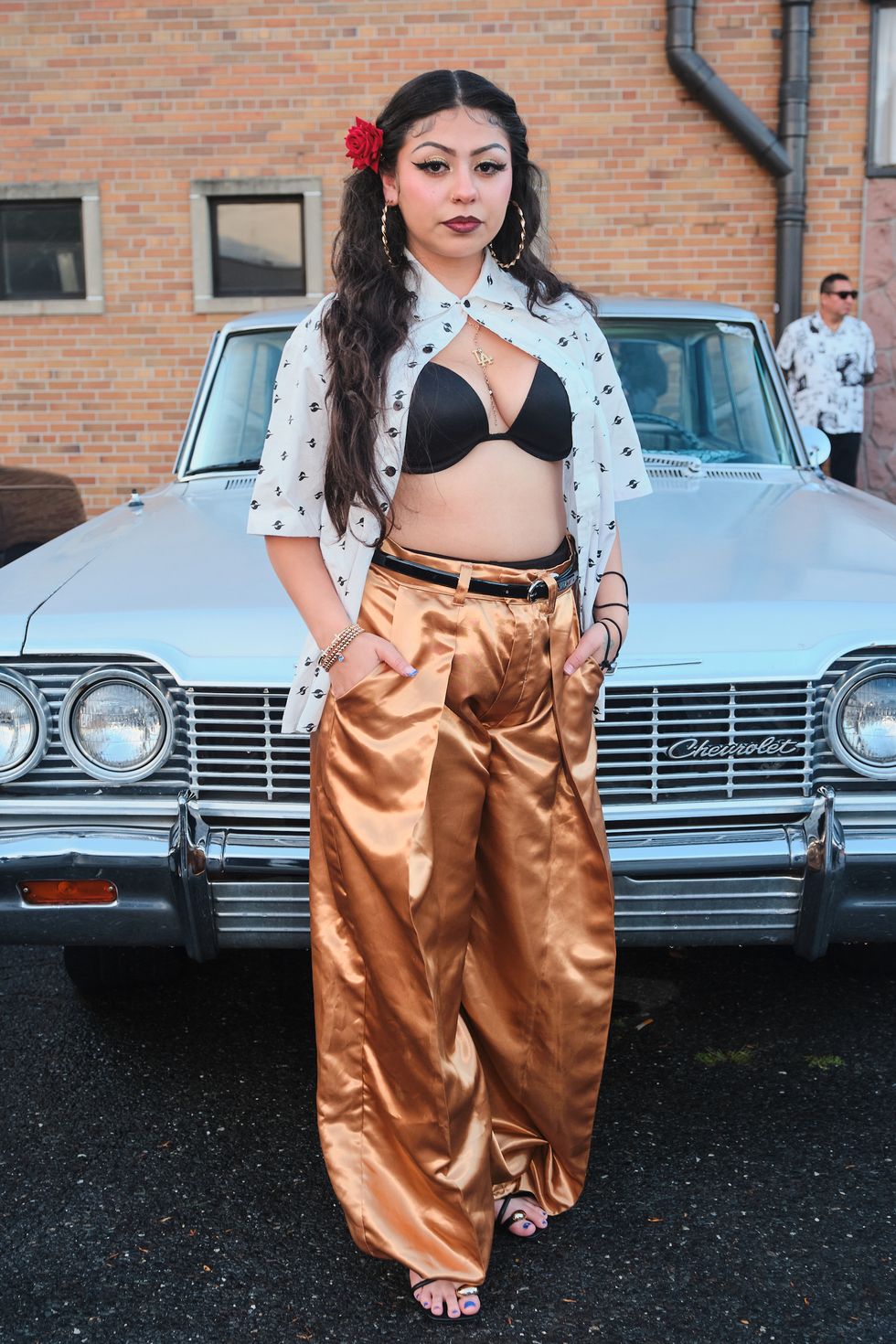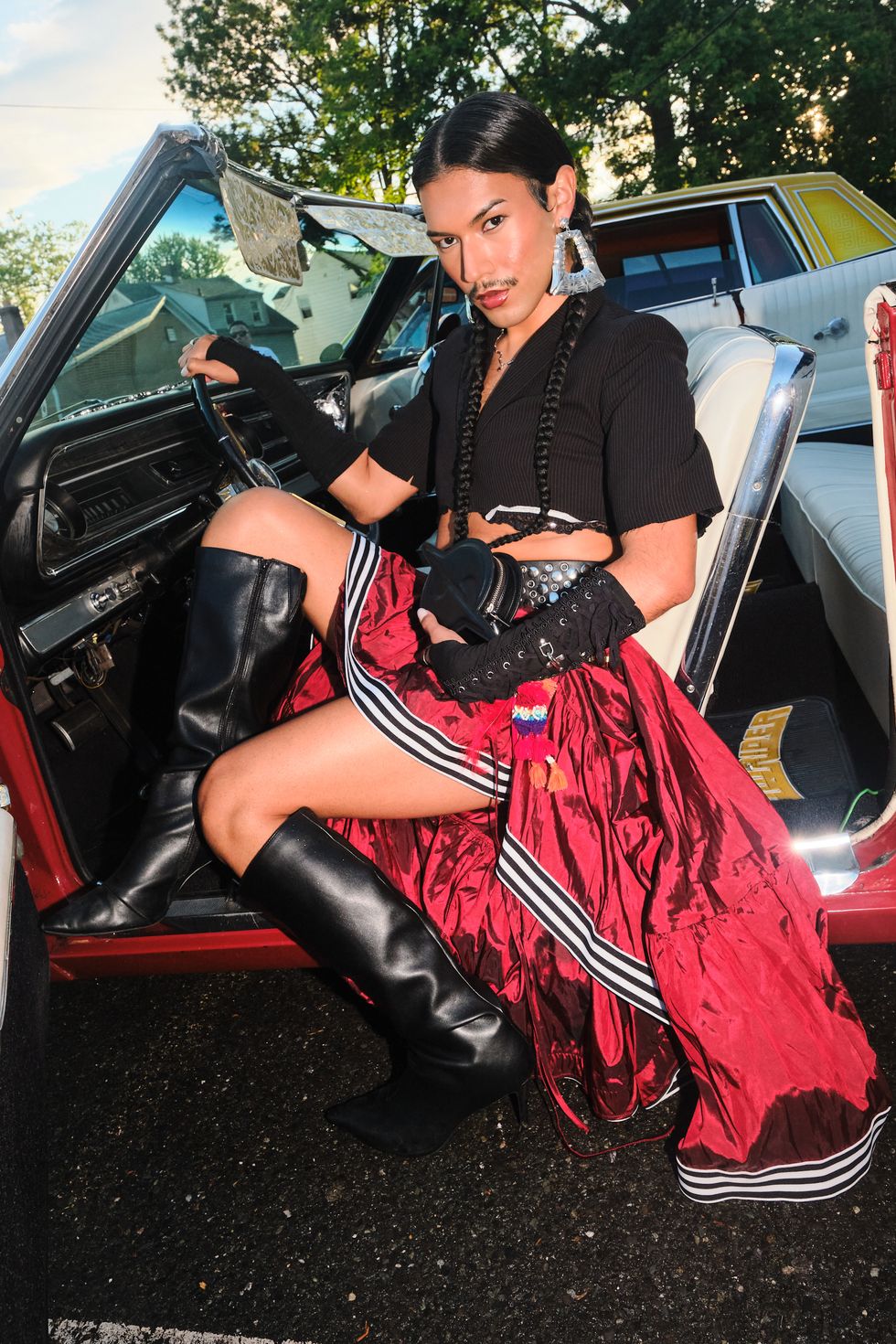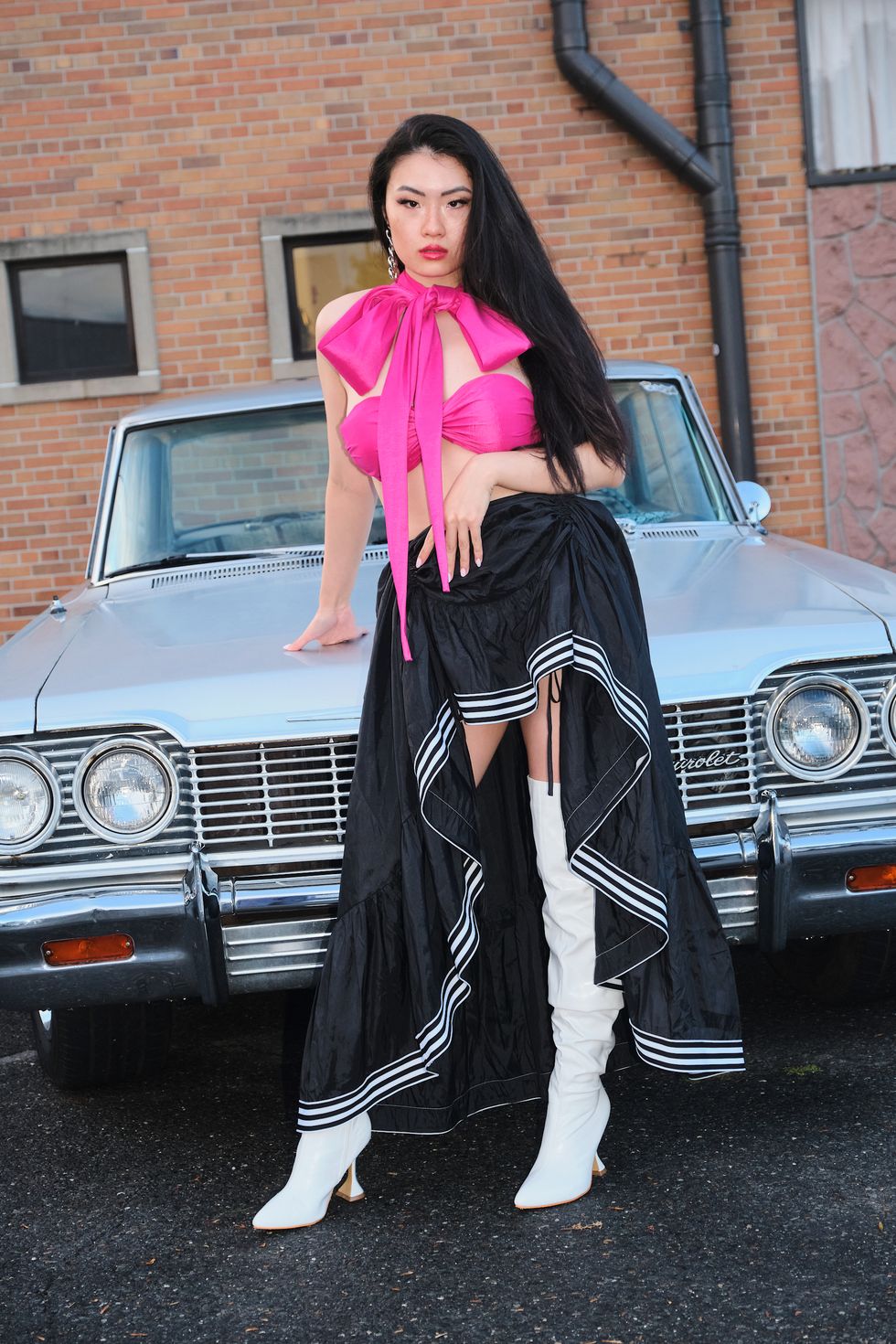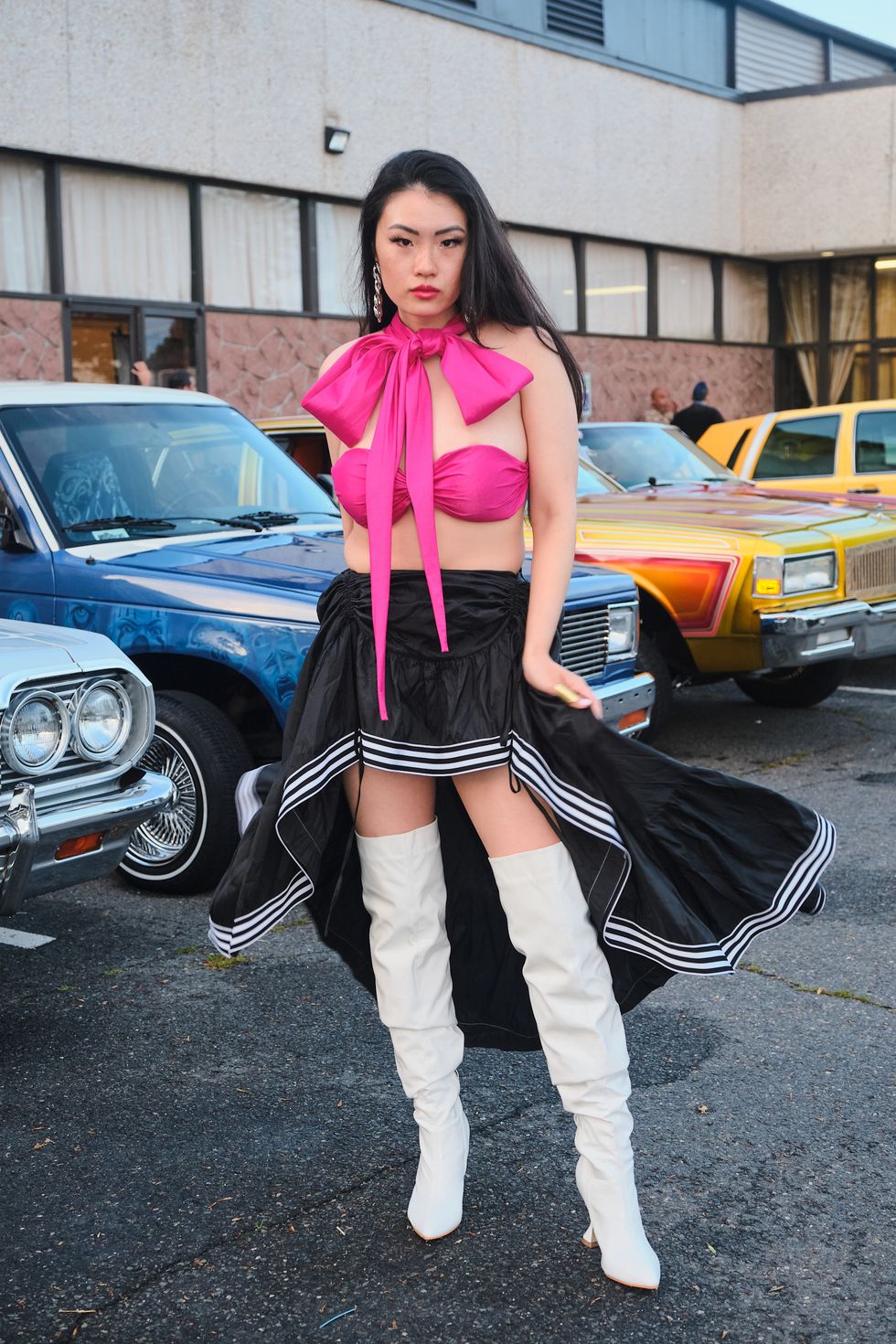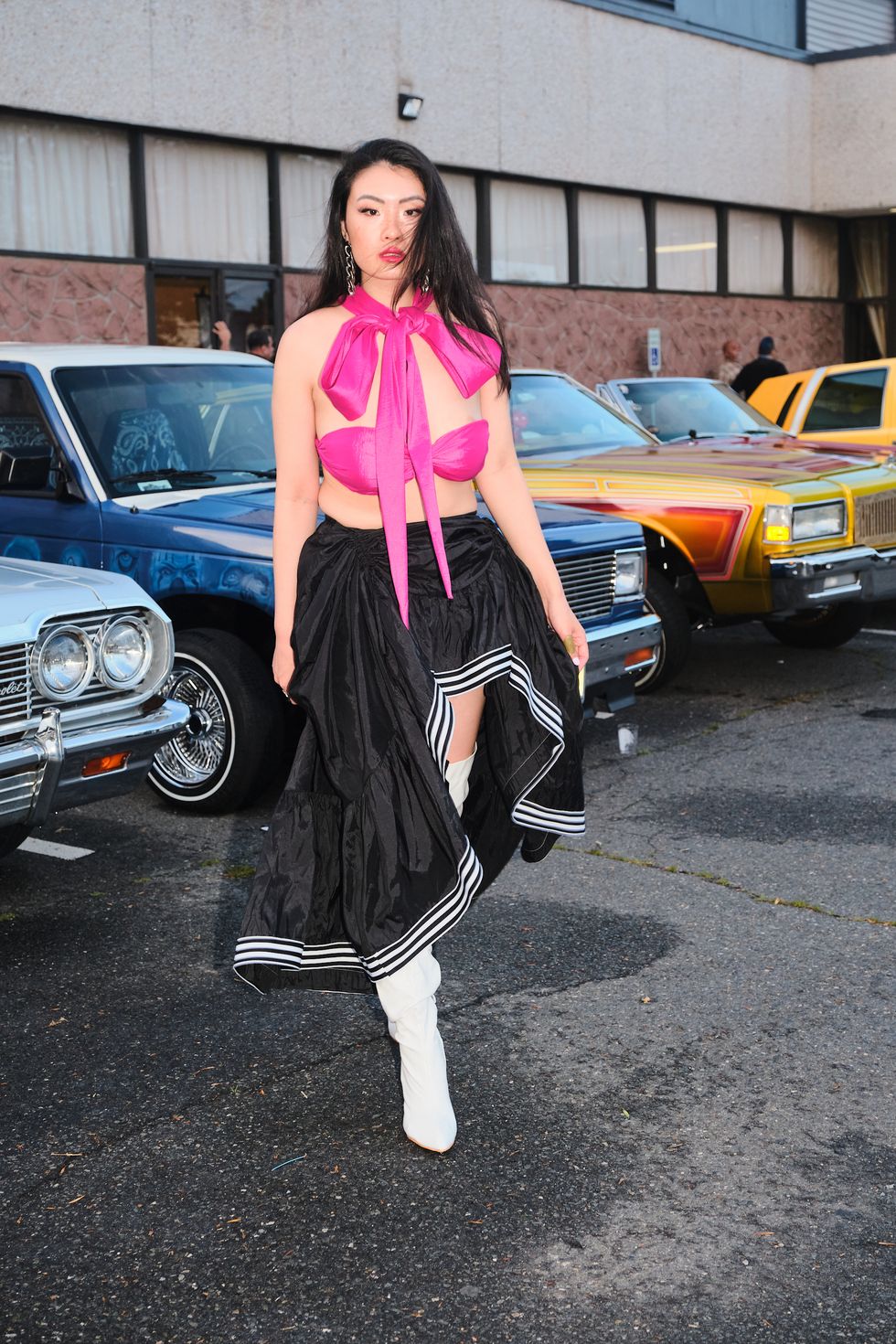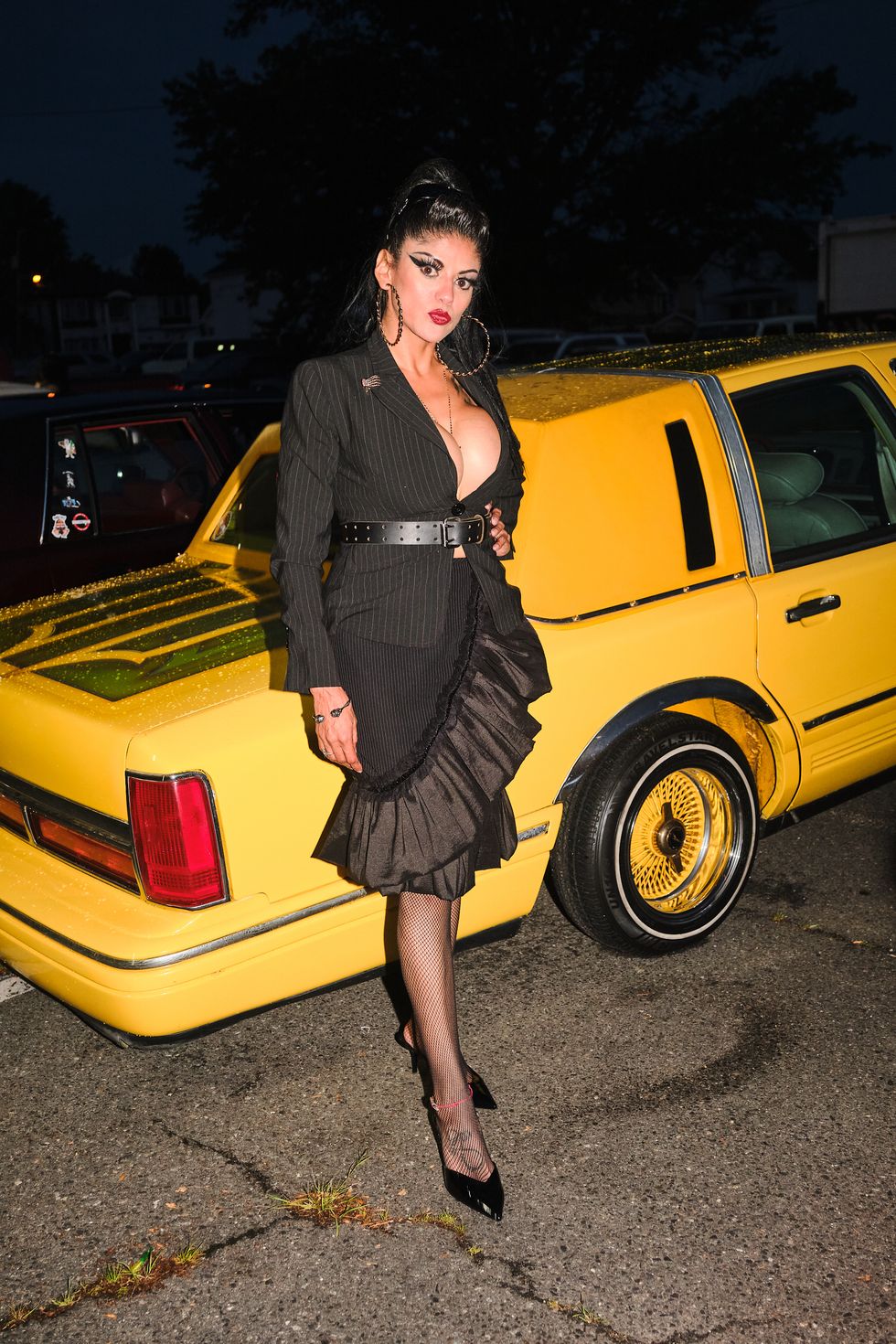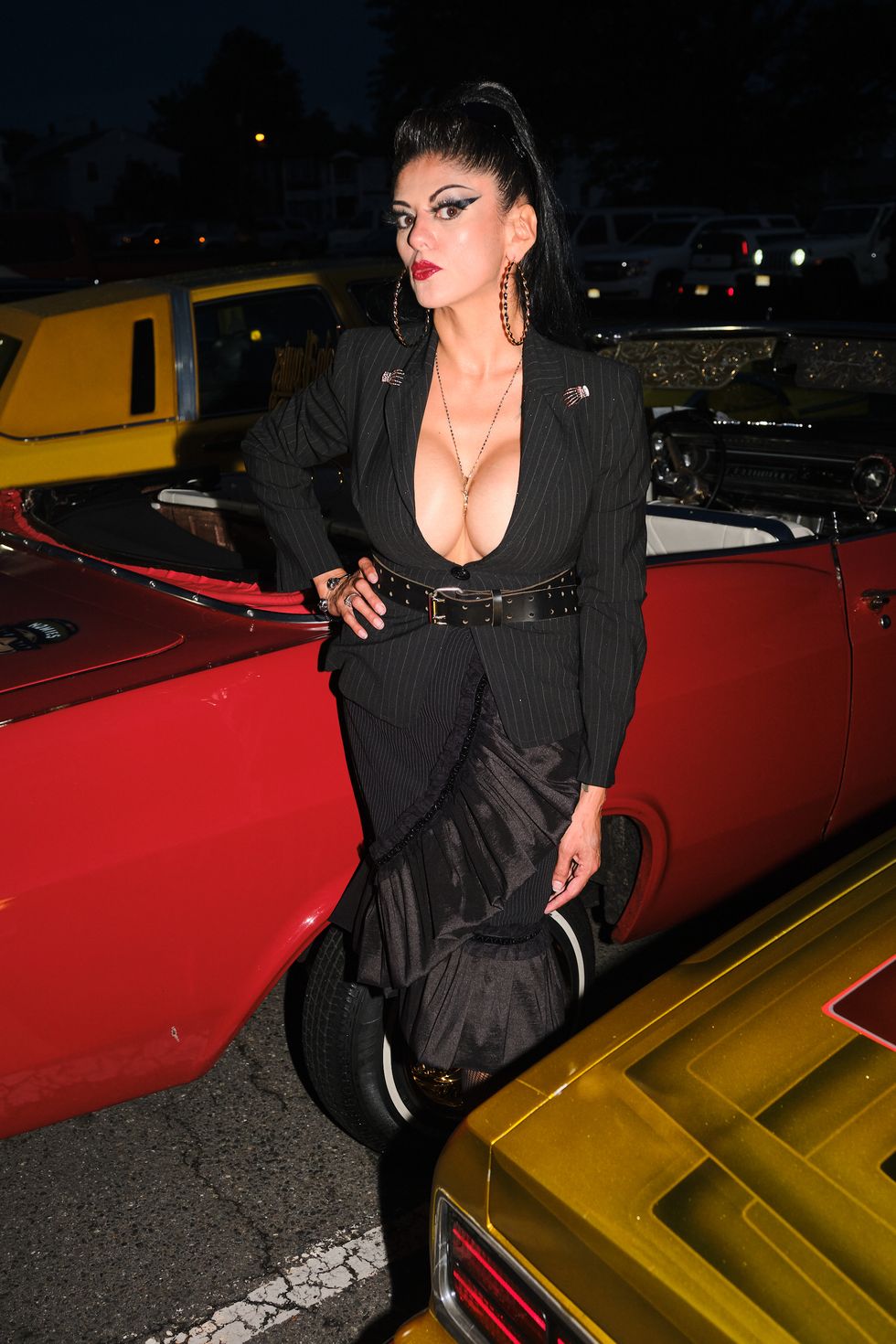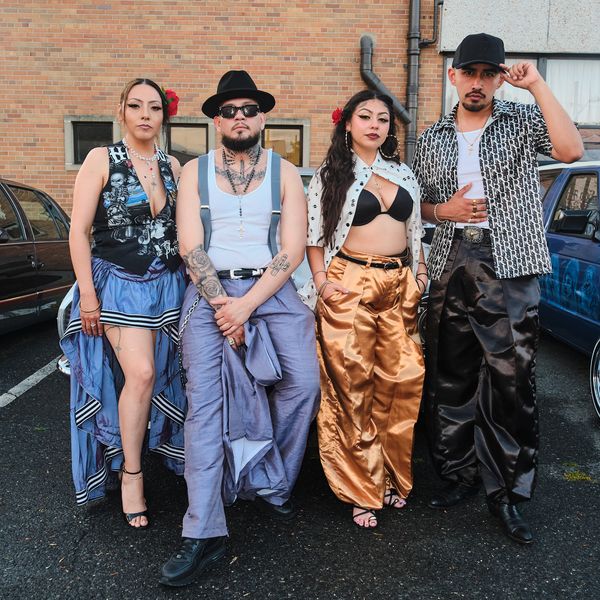
Inside the Chicano Elegance Gala with Rio World
By Ivan Guzman
Jul 08, 2025There’s a New York and Paris Fashion Week, even Miami Fashion Week. But for Mexican-Americans, it’s hard to pin down a specific event that truly honors our culture and fashion in a way that the mainstream can understand — until now.
Started by LA-bred multi-hyphenate Elvira Zamora, the Chicano Elegance Gala is here to make its mark on the culture as a traveling moment — part-fashion show, part-culture cooker and all about community. The most recent gala, held in New Jersey last month, was its first time highlighting Chicanos of the East Coast, where queer Mexican-American designer Rio Uribe of Rio World was honored with an Inspirational Award.
“It’s hard to explain what the Gala is because it’s so many things coming together to celebrate us,” Uribe tells PAPER. “It’s deeply empowering.” It rings true — being Mexican-American is about being more than one thing, this hodge-podge of culture, music, fashion, creativity, work ethic, sweat and dreaming. The Chicano Elegance Gala brings it all into one vision.
“It’s not just about the aesthetic, or drawing on your eyeliner or wearing big hoops,” founder Zamora says. “To really call yourself Chicano, I think you have to show up for your community.”
So that’s what she did. The idea for the brand initially came from a feeling of frustration, this sense that Chicanos weren’t properly getting celebrated and only getting mooched off of. “For so many years, I’ve seen our contributions get taken, rebranded and called 'innovative' by other labels, while the communities actually doing the work get no recognition,” Zamora says. “It started to feel like we were boxed into flea markets and swap meets — as if that was the ceiling.”
So she built a ballroom of her own. With quinceañera gowns, Aztec dancers and lowriders as altars of identity, the Gala offers a space that’s not only glamorous but political. Especially now — as immigration discourse grows uglier and ICE raids have resumed across the U.S. — Chicano Elegance doubles as cultural resistance. “I’ve done shows at New York and Paris Fashion Week, but this was totally different,” Uribe says. “It wasn’t for editors or press. It was for the people.”
PAPER sat down with Zamora and Uribe to talk cultural reclamation, East Coast lowrider glam and why “elegance” might just be the most radical word of all.
Can you each tell me your role in the event and what the overarching idea or mission was going into it?
Rio Uribe: I’ll let Elvira explain everything — she’s the mastermind behind the event. I came in as a guest designer, so I’ll let her take it from here.
Elvira Zamora: My name is Elvira Zamora, and I’m the creator of the Chicano Elegance Gala, which started three years ago in Los Angeles. Its purpose has always been to highlight and elevate the importance of what Chicano culture contributes to mainstream media and pop culture.
For so many years, I’ve seen our contributions get taken, rebranded and called “innovative” by other labels, while the communities actually doing the work get no recognition. It started to feel like we were boxed into flea markets and swap meets — as if that was the ceiling. So I thought, why not create something on a bigger scale, the way people do for Fashion Week or art shows?
We launched the Gala three years ago to spotlight Chicano and Latino designers, artists, musicians — to create a space where we could celebrate each other, our accomplishments and the beauty we bring to the world. It’s really just a feel-good movement for us, a way of affirming that we don’t belong in the back alley. If we don’t get invited to the fancy schmancy events, then we’ll create our own.
I love that. What made this year’s Gala different from the past ones? And why did it make sense to bring on Rio and Rio Sport for this version in New Jersey?
Elvira: This one was different because I hadn’t planned on going to the East Coast at all. It really came from a request by Chicanos out there. To be honest, at first I didn’t even know there were Chicanos on the East Coast. I knew there were a lot of immigrants from Central and South America, but “Chicanos”? I was like, how does that even work — with lowriding and all of that?
But it turns out, there is a community. It’s just very spread out, from Connecticut to Jersey and beyond. They found us through social media, saw what we were doing in L.A. and wanted something similar out there. So we brought it to them. Same recipe, East Coast flavor.
I had honored Rio’s brand at last year’s Gala because he’s so inspiring to our community. His story, where he comes from, how he puts everything together with such beauty while staying rooted in our culture — it resonates deeply. I also knew he had some history on the East Coast, so it felt right to include him in this year’s event. It made the night even more special and meaningful for our guests.
How would you say Chicano culture has evolved? Because even I, as someone who's Mexican-American, still get tripped up over the differences between "Chicano," "Tejano," "Hispanic," and "Latino." How would you explain Chicano culture in a modern sense to someone who doesn’t really know much about it?
Elvira: It’s cool, because I come from a very outsider perspective — I’m not even Mexican. I’m actually Peruvian. But I grew up with Chicanos, and that’s the culture I know best. That’s the community that welcomed me when others didn’t. I have no Peruvian friends. I still don’t. All my friends are Mexican or Chicano.
For me, this whole project is a love letter to that community. Chicano culture created its own subculture, one that exists in between. You’re not American enough for the Americans, and you’re not Mexican enough for the Mexicans. You’re in this limbo, so you build your own lane, surrounded by people who are more complex than the stereotypes suggest. Especially the negative ones.
I want to move away from those negative tropes and show that you can be a "chingona" and be an attorney. You can be a badass and own a mechanic shop. You can be a leader in your community, offering positivity and mentorship. That’s the narrative I want to shift.
Even though I don’t personally identify as Chicano (because I’m not), I’ve always felt accepted by the community. It’s not gatekept, at least not in my experience. As for the labels (Hispanic, Latino) I can’t stand the word “Hispanic.” “Latino” is also complicated. I couldn’t name the Gala “Indigenous,” because not everyone has connected to that part of their identity yet. So I chose “Chicano” because it’s the subculture I know intimately, and it’s one that, believe it or not, is incredibly welcoming.
Especially in major cities, it feels like this movement is growing and obviously super relevant right now with everything going on. What do you think the future of Chicano Elegance looks like?
Elvira: I hope it inspires other communities to create something of their own. I don’t have any corporate backing. It’s just me. This was 100% grassroots. It came from frustration, from feeling like we weren’t being celebrated.
My hope is that this motivates other people to start their own art shows or their own fashion weeks. Who cares if it’s not “New York Fashion Week” and Vogue isn’t shooting it? Let it be celebrated by your own community. That’s what really matters. Inspire the people around you.
Especially now, like you said, with everything going on, our communities — whether people are here legally or not — are being constantly devalued. We need to uplift our spirits more than ever.
Rio, do you want to talk about how your brand played a role in this event?
Rio: Yeah, definitely. I actually want to go back to your question about the definitions of "Chicano," "Tejano," "Latino." I think those labels can really divide our community too much. It would be great if we could all agree on one term that unites us.
For me, growing up, my mom always told me I was Chicano. I didn’t really understand the difference between Mexican-American and Chicano. It still feels like a blurred line. But what I’ve come to understand is that “Mexican-American” feels like a government label, while “Chicano” is more of a self-appointed identity. You usually adopt it when you recognize and honor your Indigenous roots over your European ancestry. There’s also a level of activism that comes with it. It’s not just about the aesthetic, or drawing on your eyeliner or wearing big hoops. To really call yourself Chicano, I think you have to show up for your community. You have to mentor, uplift people striving for a better life and honor those who came before us — our grandparents, our ancestors.
You don’t even have to be Mexican at this point. You can be Dominican, Peruvian, any immigrant background, and still identify with Chicano culture. It’s really about building, and continuing to build, even when you’re being oppressed or talked down on in the media. That’s why I’ve embraced that identity.
When I started my brand, Gypsy Sport, 11 years ago, Chicano culture was a huge part of my spirit, but the brand wasn’t marketed that way. I was leading with queerness first, especially in New York at a time when Trump had just been elected. But since moving to LA, I’ve reconnected more deeply with my roots and realized how many queer people are also part of the Chicano community and need that visibility and empowerment. There are so many layers to the Chicano community that deserve a spotlight. That’s why I started steering my work, my aesthetic and my entire vision toward honoring that identity.
Last year, I went to the Chicano Elegance Gala in LA, and I was blown away by everything Elvira and her community had put together — the lowriders, the home-cooked-style food, the mezcal and wine tastings from Latino and Chicano-owned companies. There was amazing fashion. People showed up in quinceañera gowns, ancestral regalia. There were Aztec dancers, poetry, music. It’s hard to explain what the Gala is because it’s so many things coming together to celebrate us. It’s deeply empowering. You’re surrounded by people you might never have met otherwise, but you instantly share values, roots and identity.
I was honored with an Inspirational Award, which meant so much to me. So when Elvira said she was planning one on the East Coast, I told her I had to be involved. Whatever role, I just wanted to be part of it. They do runway shows at every Gala, and this year I was one of the featured designers.
I’ve done shows at New York and Paris Fashion Week, but this was totally different. It wasn’t for editors or press. It was for the people. People who could actually see themselves in my clothes and feel connected to where I’m coming from. That kind of experience is rewarding in a way that mainstream fashion coverage could never offer.
I’m so grateful you’re taking the time to review it. When I reached out to Brian, I knew he had Mexican roots and might connect with this. But it’s hard to get press attention because we’re such a grassroots, community-driven effort. So thank you for taking the time to check out the photos and talk about it.
Elvira: That’s really good, and thank you for bringing that up, Rio, about the queer community. That’s something I’ve always made a priority in the Gala. From the very beginning, from the first to the third, we’ve been intentional about making sure we don’t exclude anyone from any community.
Like you said, things are often so segregated — this one’s for that group, and that one’s for another — and I’m like, "No. We’re all going through this. Just look at the news. No one’s getting excluded when it comes to oppression. As long as we have this skin, we’re being targeted. It doesn’t matter if you’re straight or gay, rich or not."
So for me, it’s always been important to include people who may not have been exposed to the LGBTQIA+ community. At the Gala, they will be, whether they want to or not. And they always walk away saying, “You know what? That was actually pretty cool.” And I’m like, see? You didn’t burn up. You didn’t die. It’s not that wild.
To hear that from straight, macho, Chicano, cholo-type guys? That means everything to me. It’s not just that they had a good time, it’s that they were respectful. They weren’t negative toward anyone, and that’s huge. That’s how we start breaking down walls and building unity. So thank you again for bringing that up, Rio.
Photography: Hatnim Lee
From Your Site Articles
MORE ON PAPER
ATF Story
Madison Beer, Her Way
Photography by Davis Bates / Story by Alaska Riley
Photography by Davis Bates / Story by Alaska Riley
16 January
Entertainment
Cynthia Erivo in Full Bloom
Photography by David LaChapelle / Story by Joan Summers / Styling by Jason Bolden / Makeup by Joanna Simkim / Nails by Shea Osei
Photography by David LaChapelle / Story by Joan Summers / Styling by Jason Bolden / Makeup by Joanna Simkim / Nails by Shea Osei
01 December
Entertainment
Rami Malek Is Certifiably Unserious
Story by Joan Summers / Photography by Adam Powell
Story by Joan Summers / Photography by Adam Powell
14 November
Music
Janelle Monáe, HalloQueen
Story by Ivan Guzman / Photography by Pol Kurucz/ Styling by Alexandra Mandelkorn/ Hair by Nikki Nelms/ Makeup by Sasha Glasser/ Nails by Juan Alvear/ Set design by Krystall Schott
Story by Ivan Guzman / Photography by Pol Kurucz/ Styling by Alexandra Mandelkorn/ Hair by Nikki Nelms/ Makeup by Sasha Glasser/ Nails by Juan Alvear/ Set design by Krystall Schott
27 October
Music
You Don’t Move Cardi B
Story by Erica Campbell / Photography by Jora Frantzis / Styling by Kollin Carter/ Hair by Tokyo Stylez/ Makeup by Erika LaPearl/ Nails by Coca Nguyen/ Set design by Allegra Peyton
Story by Erica Campbell / Photography by Jora Frantzis / Styling by Kollin Carter/ Hair by Tokyo Stylez/ Makeup by Erika LaPearl/ Nails by Coca Nguyen/ Set design by Allegra Peyton
14 October
